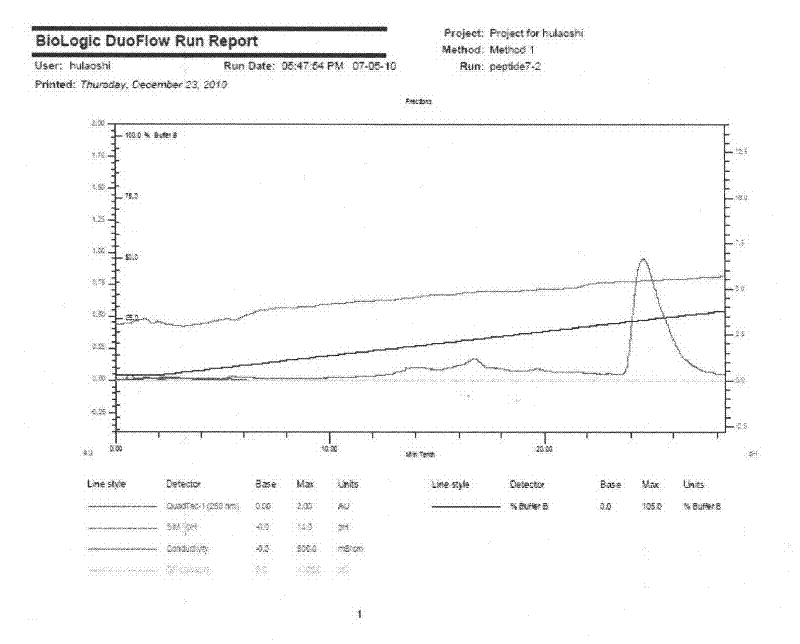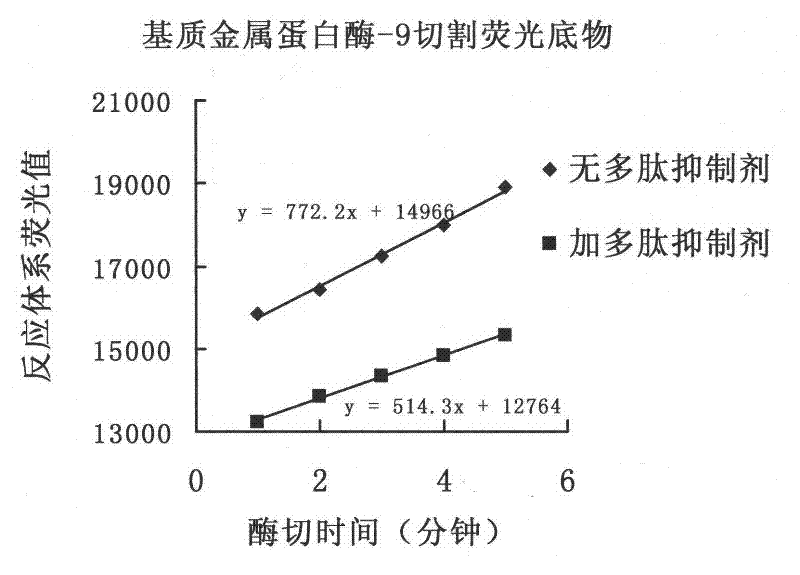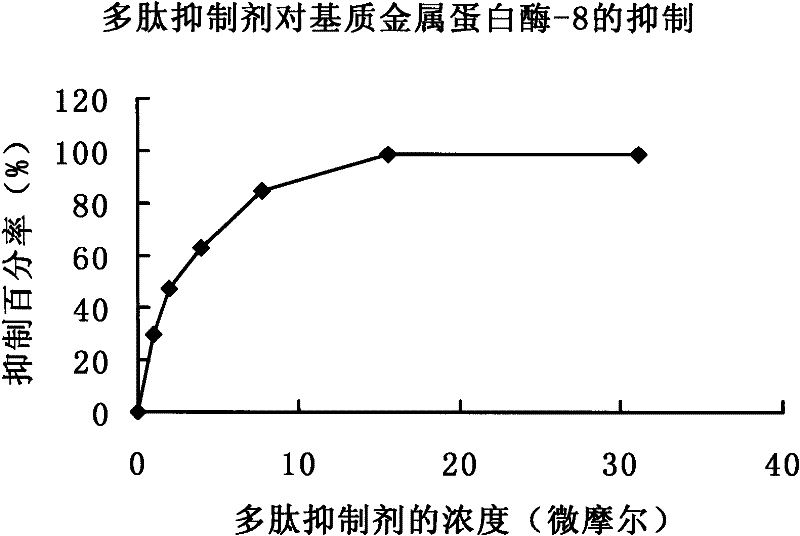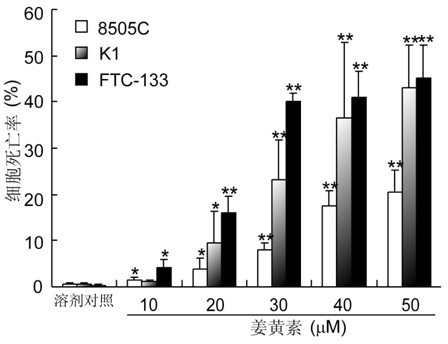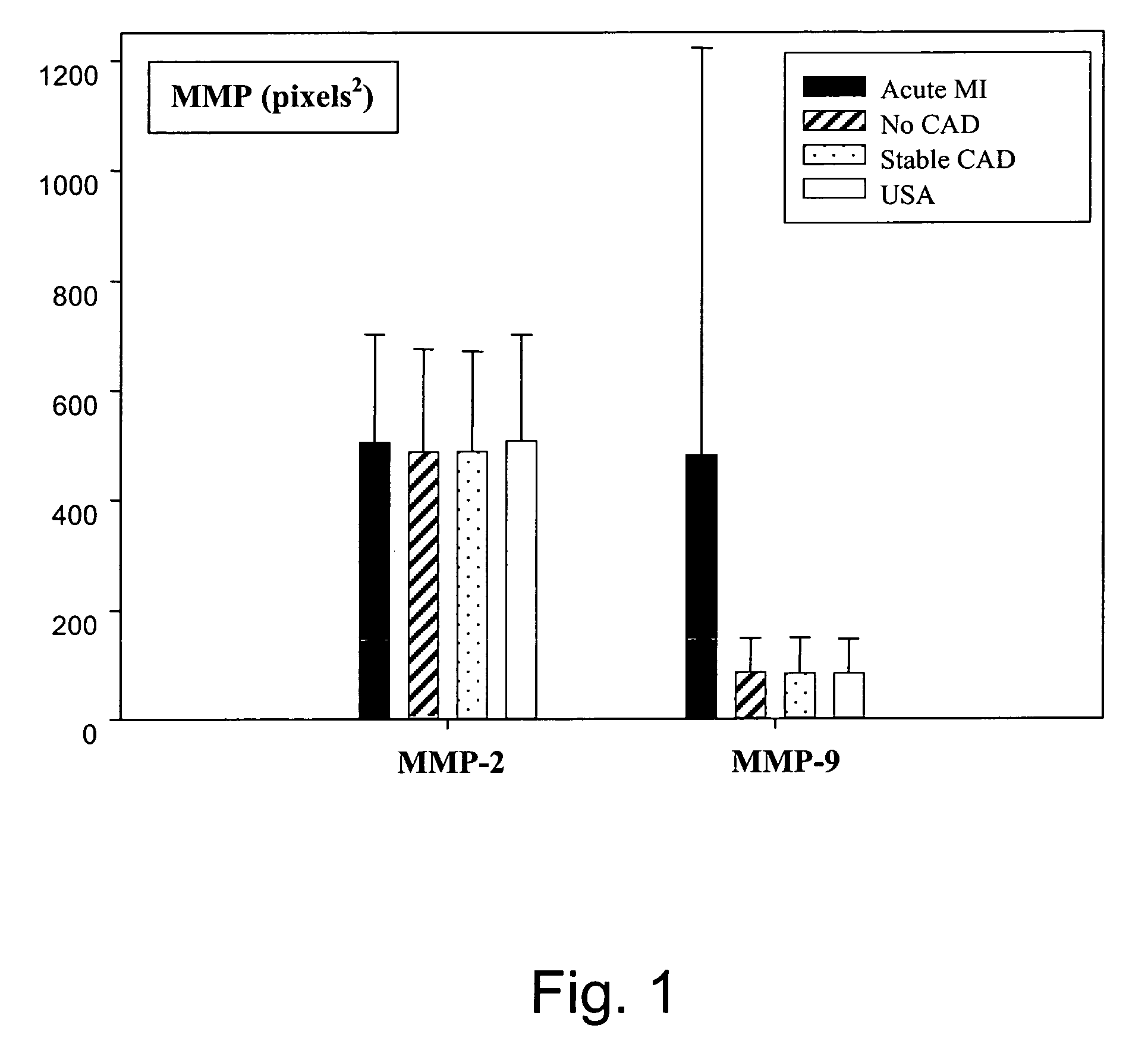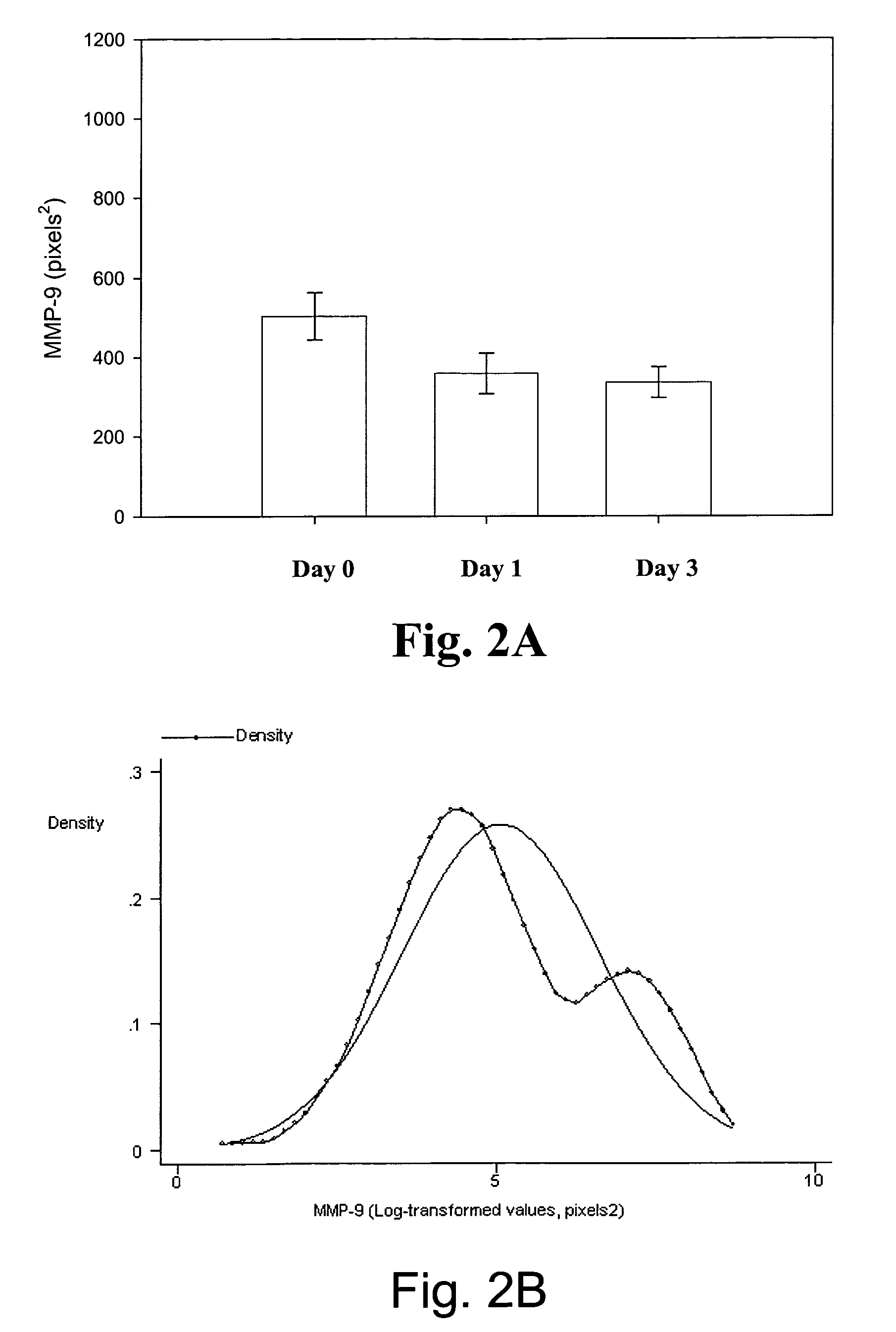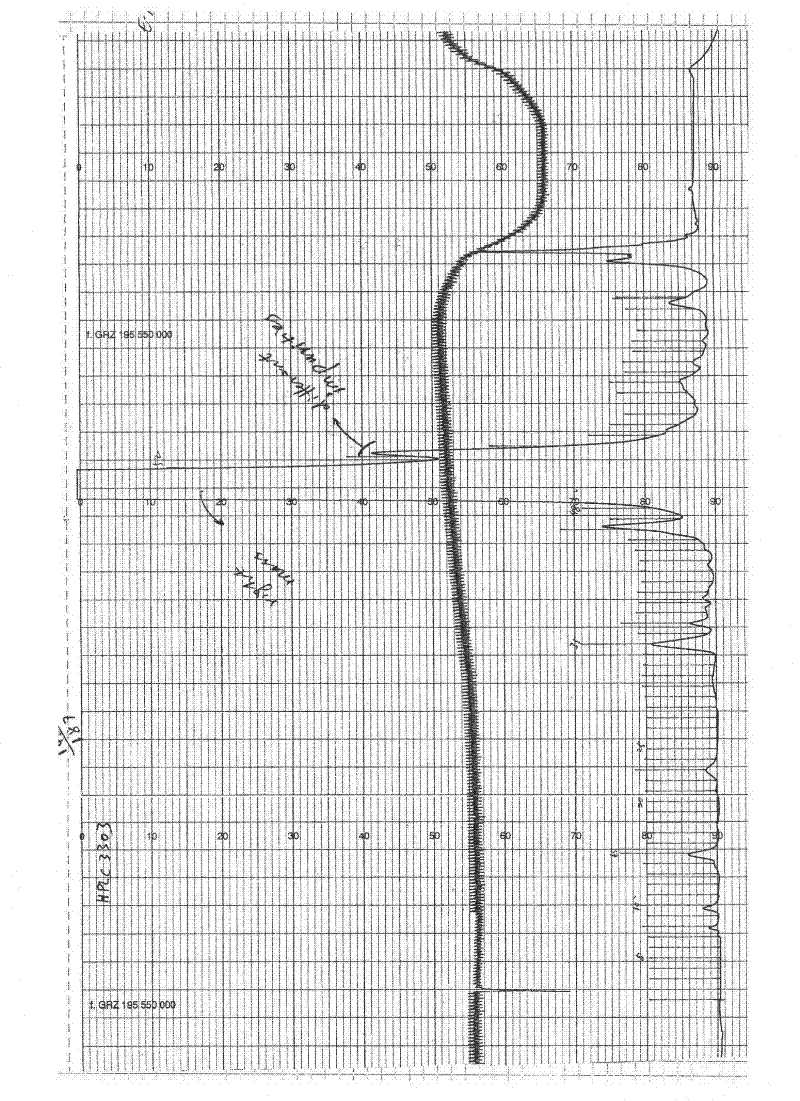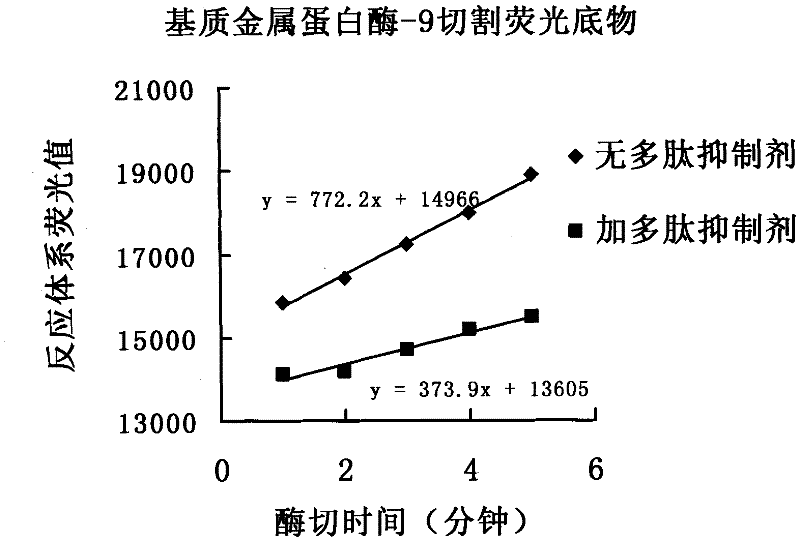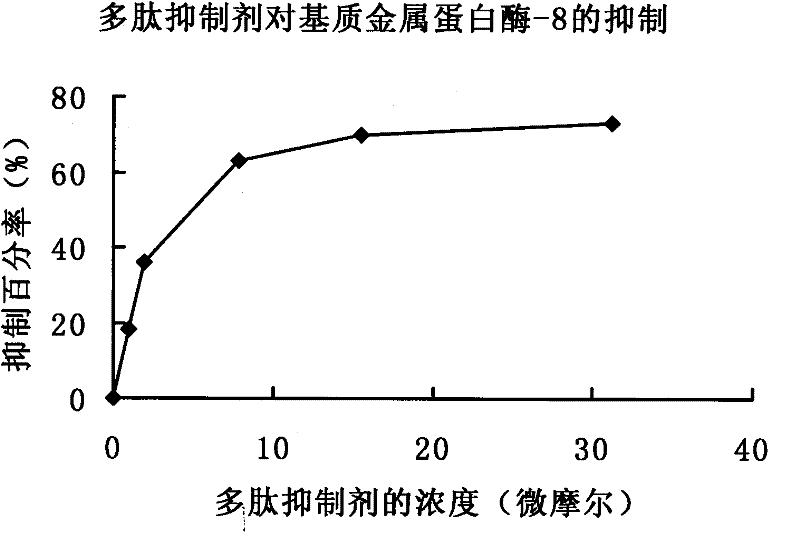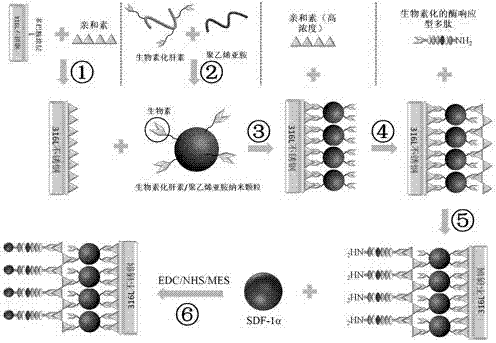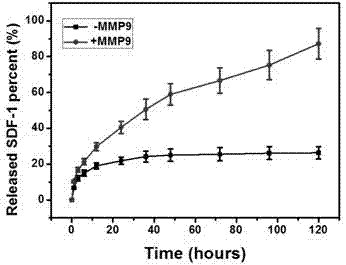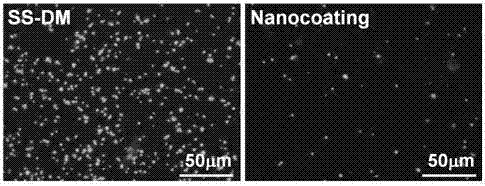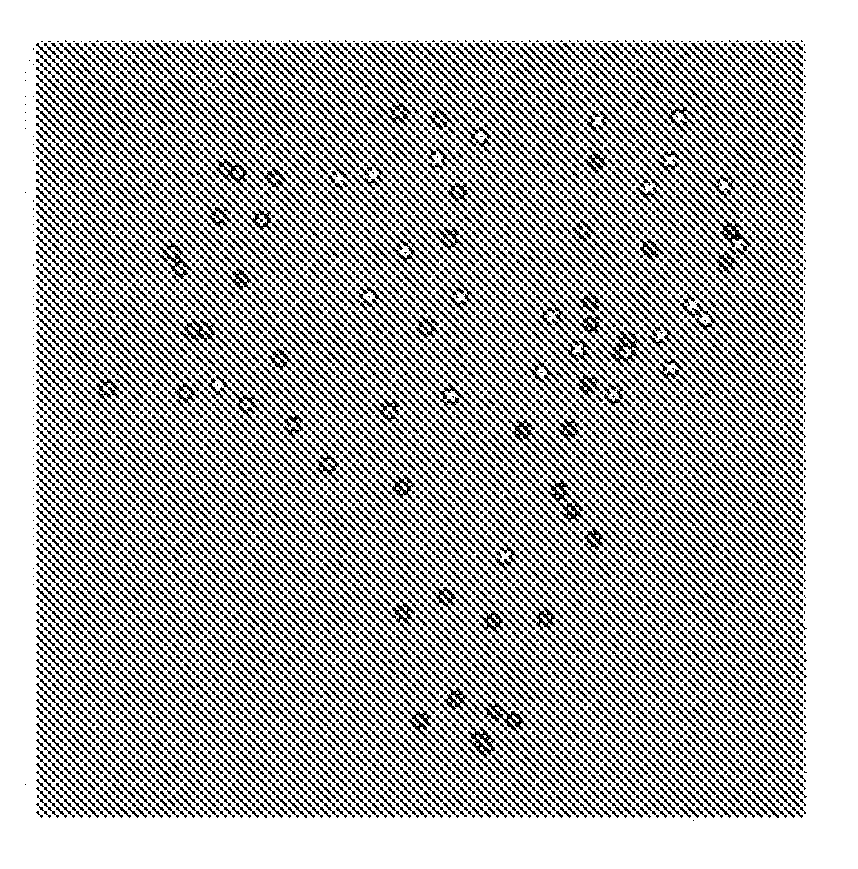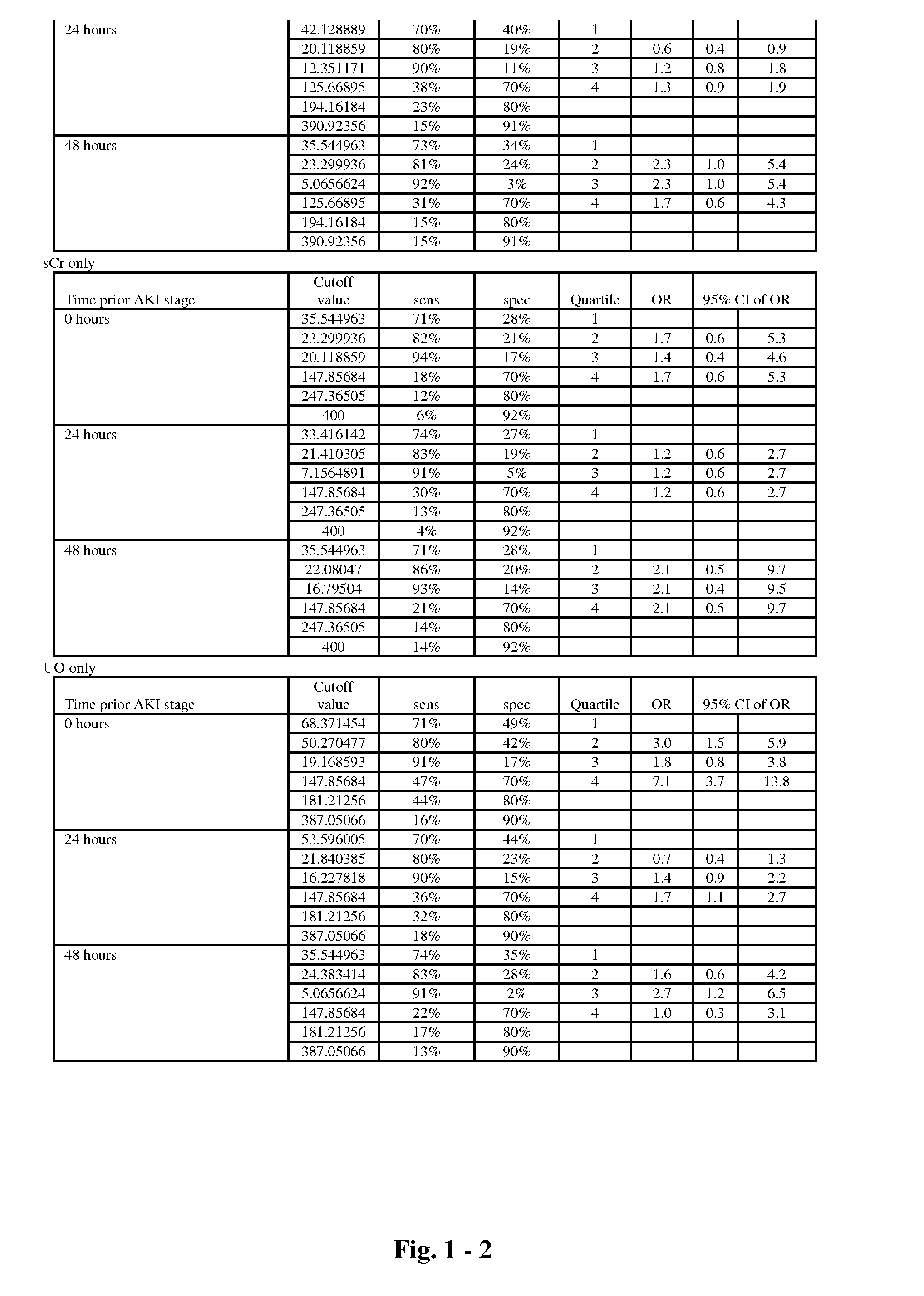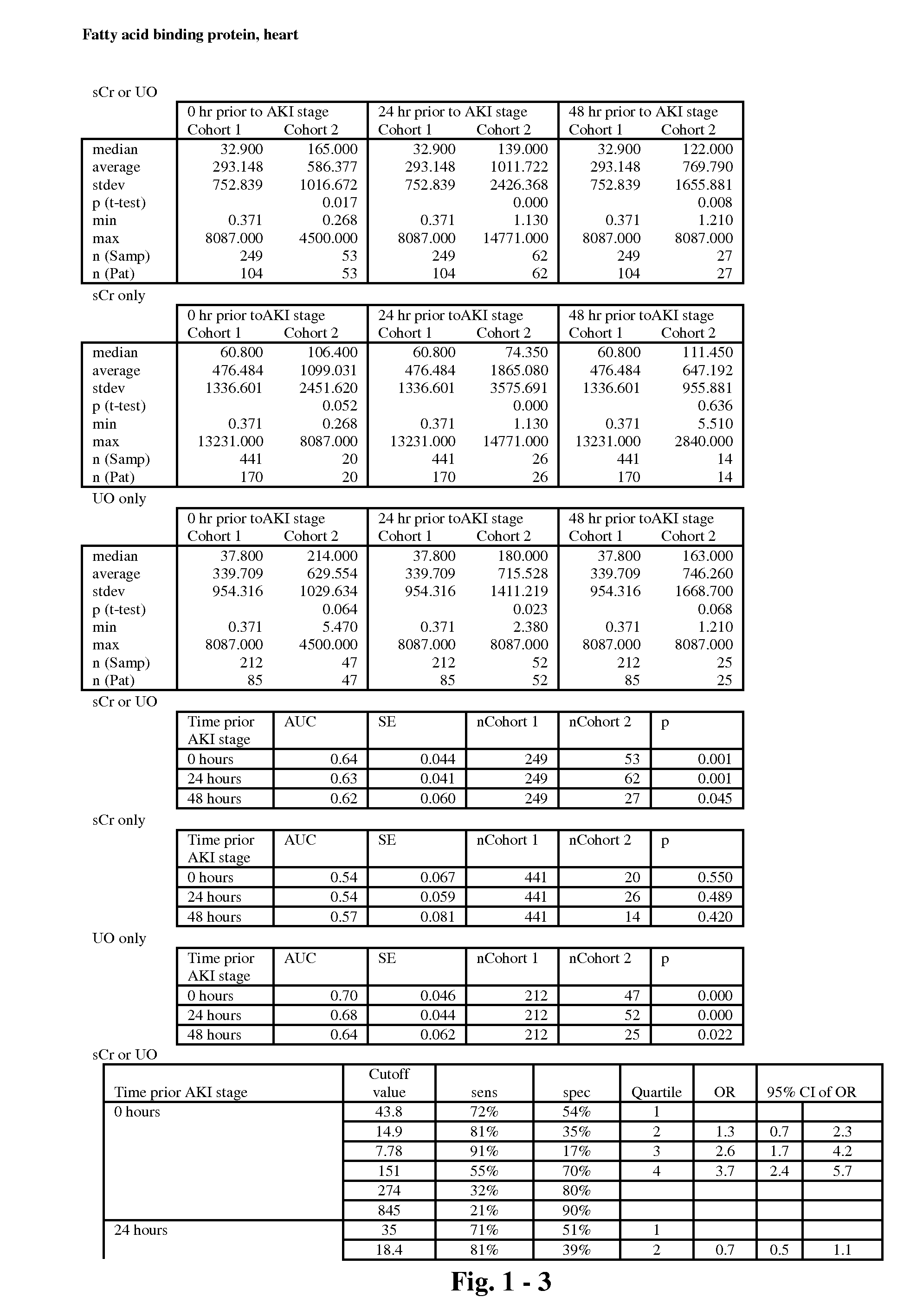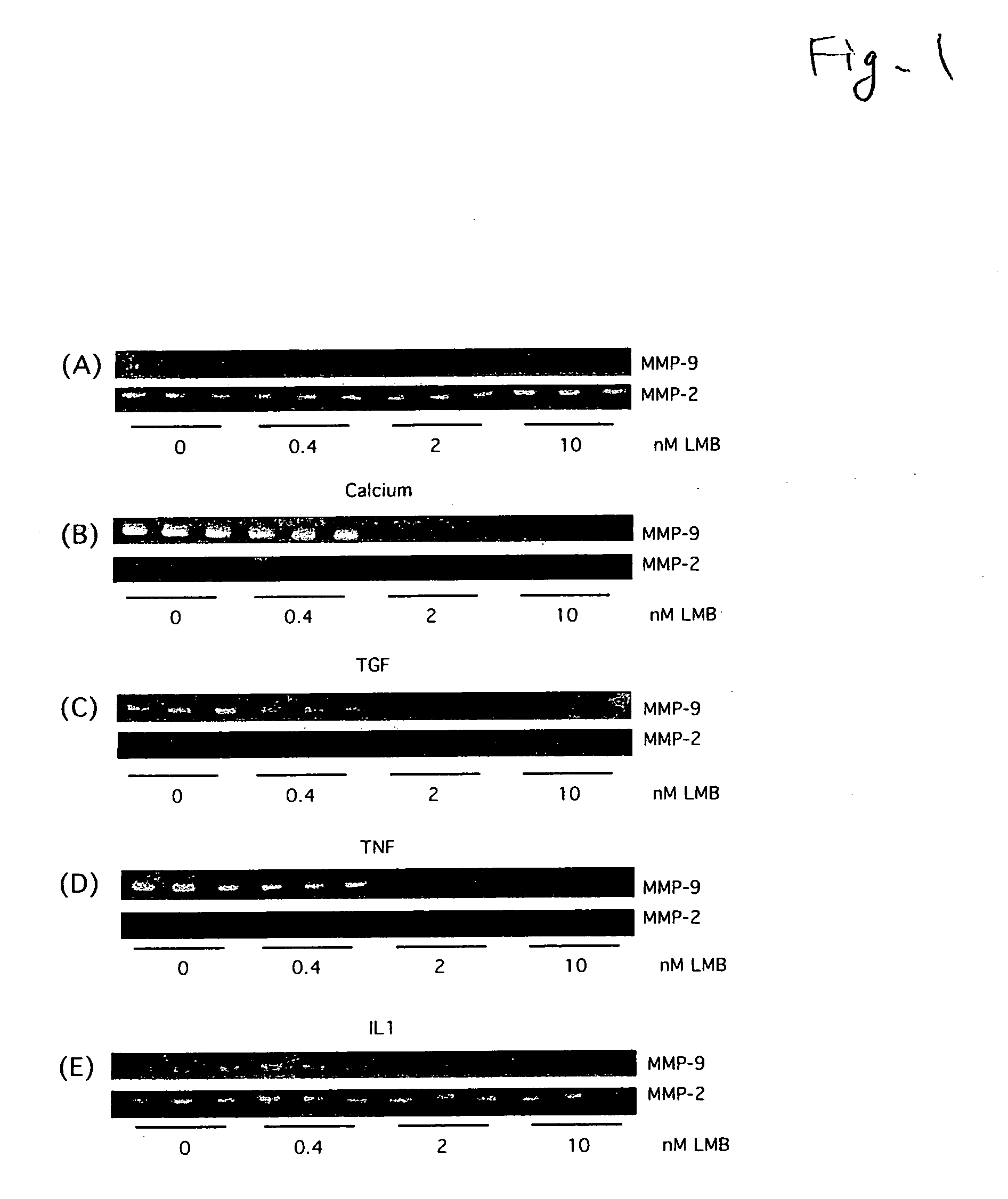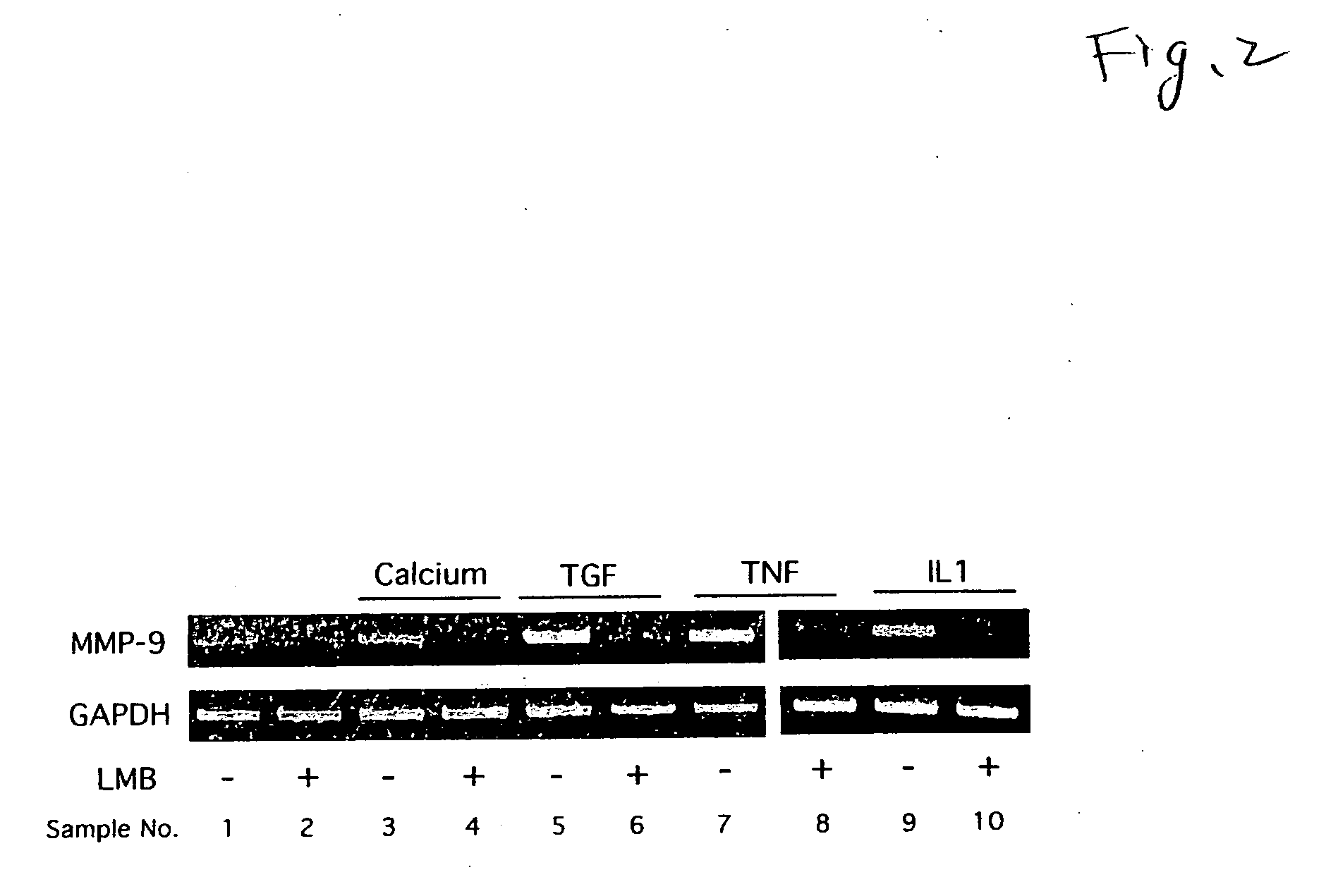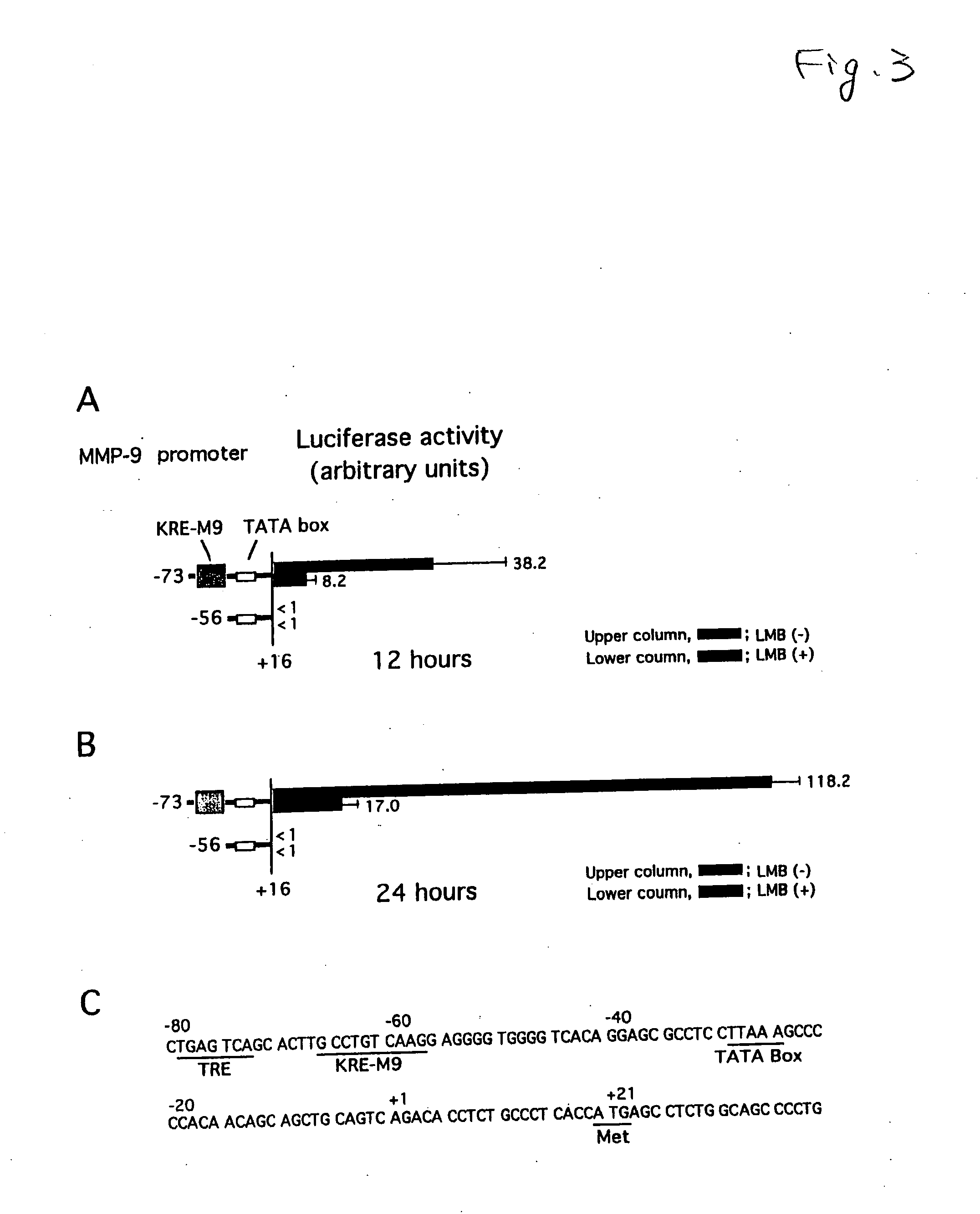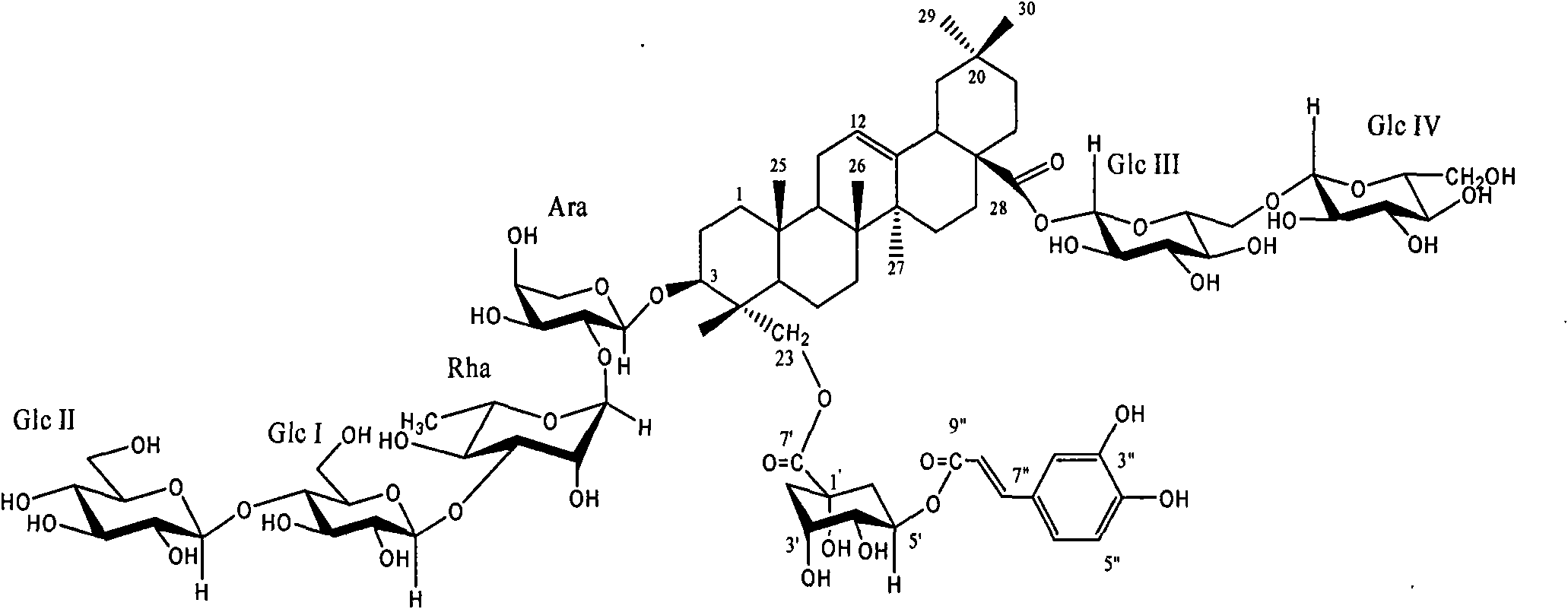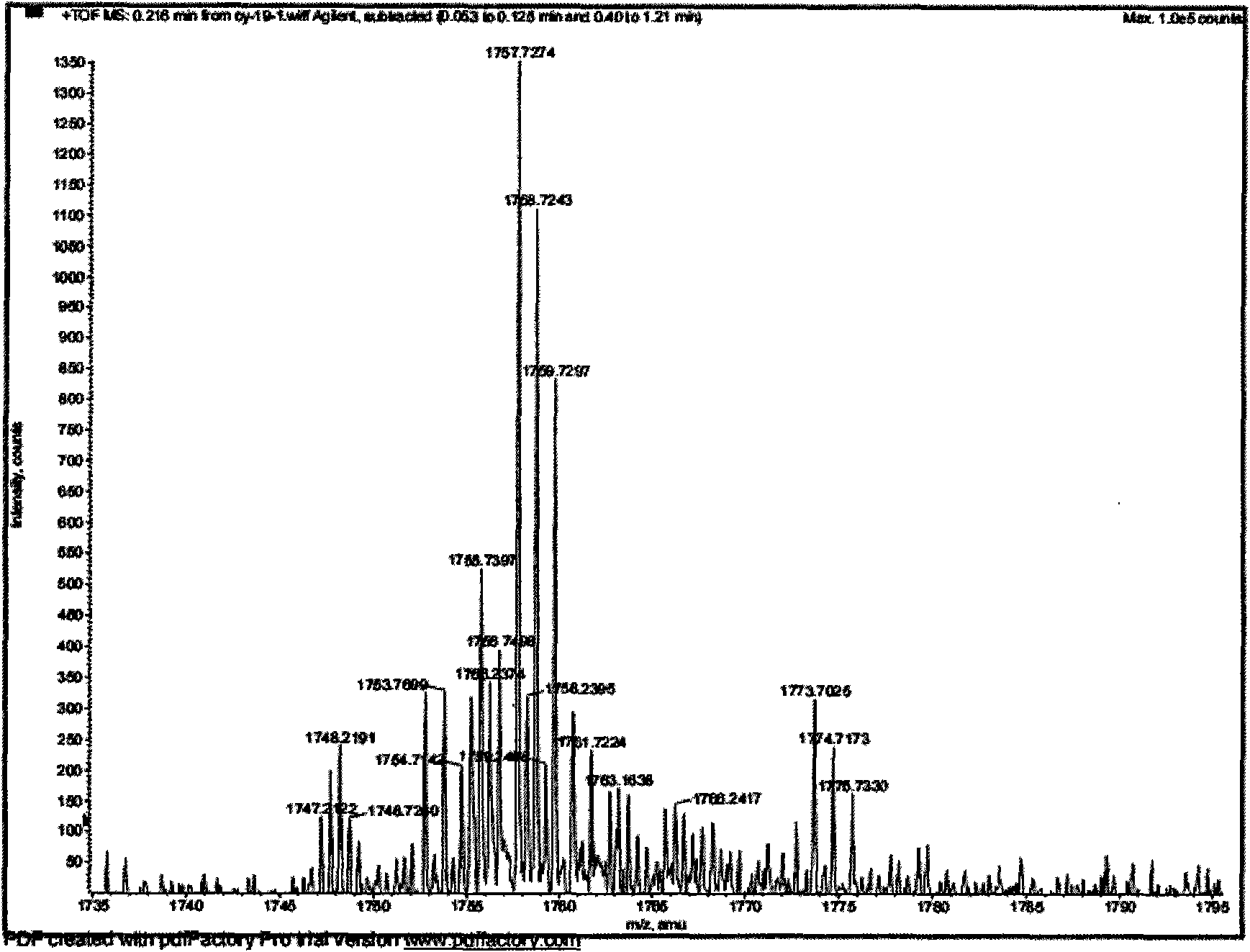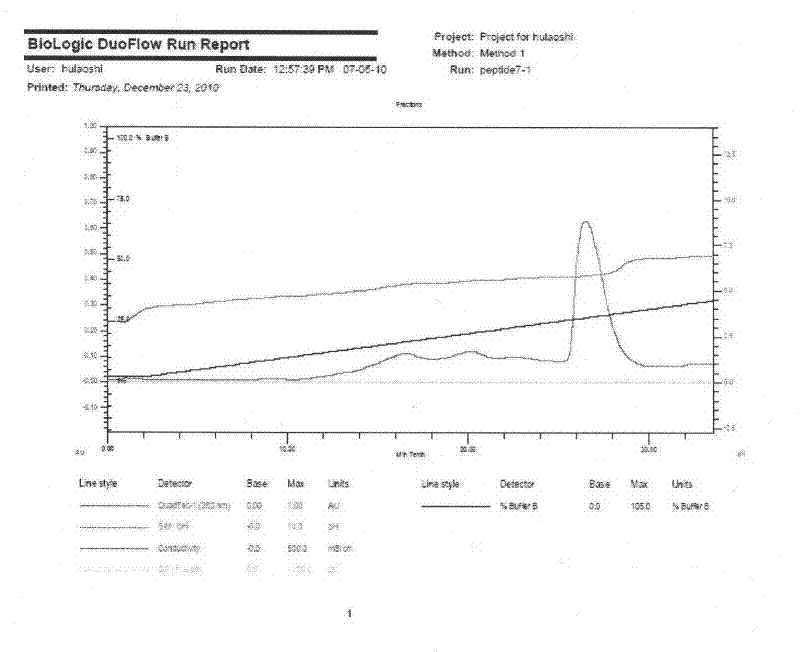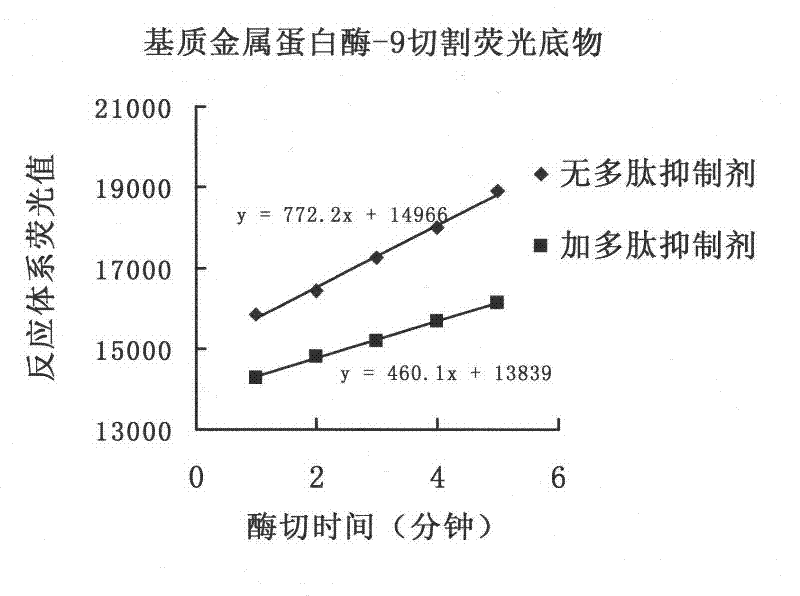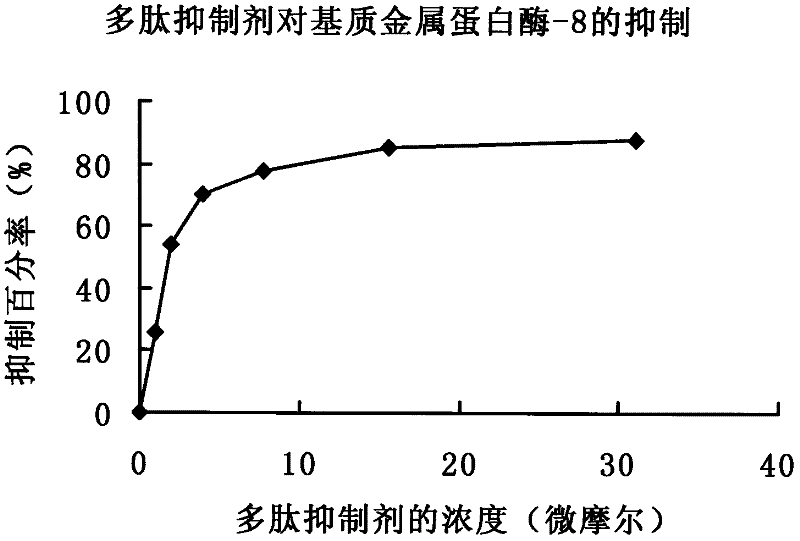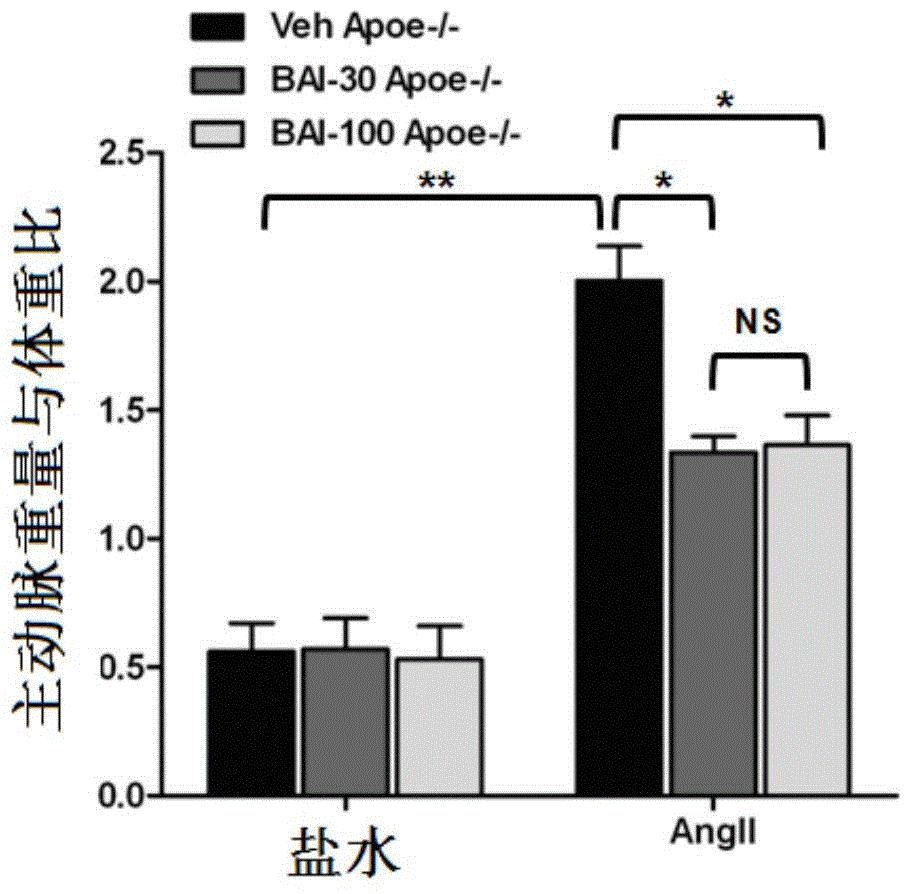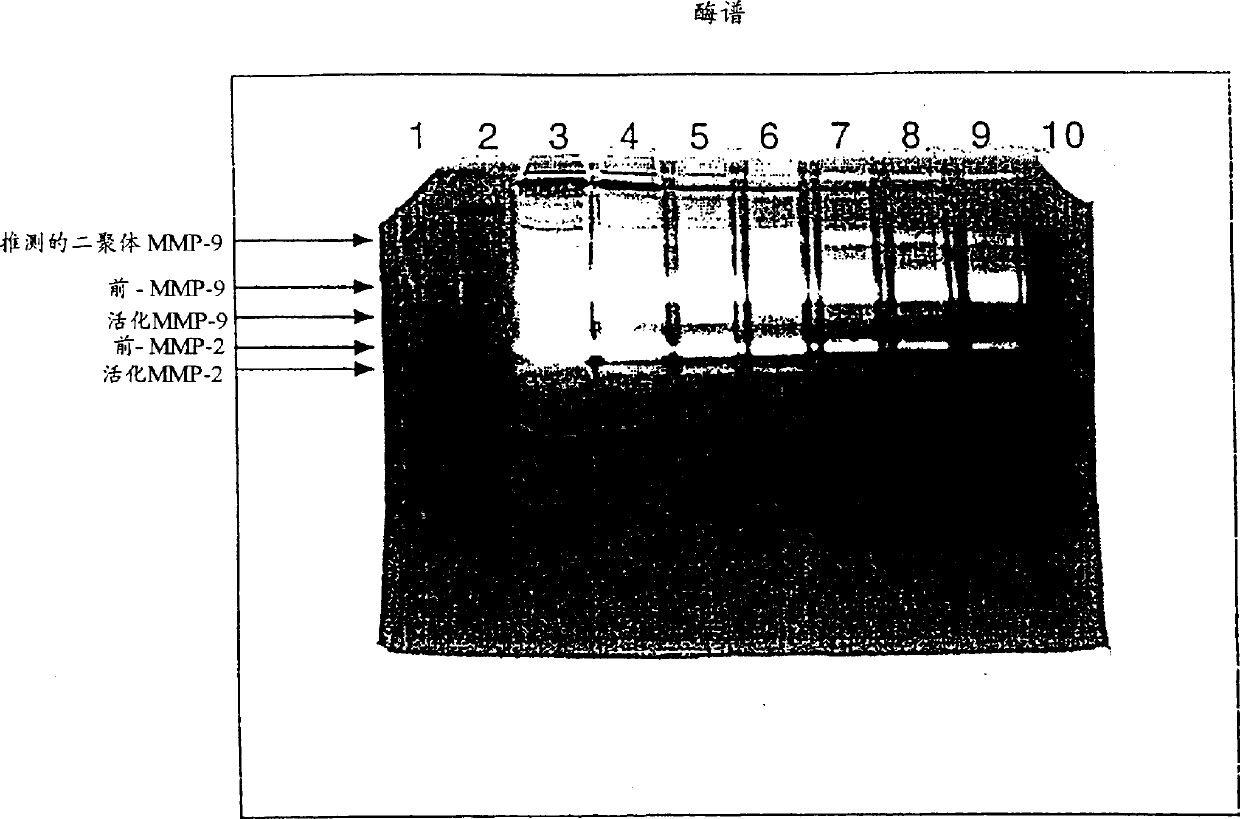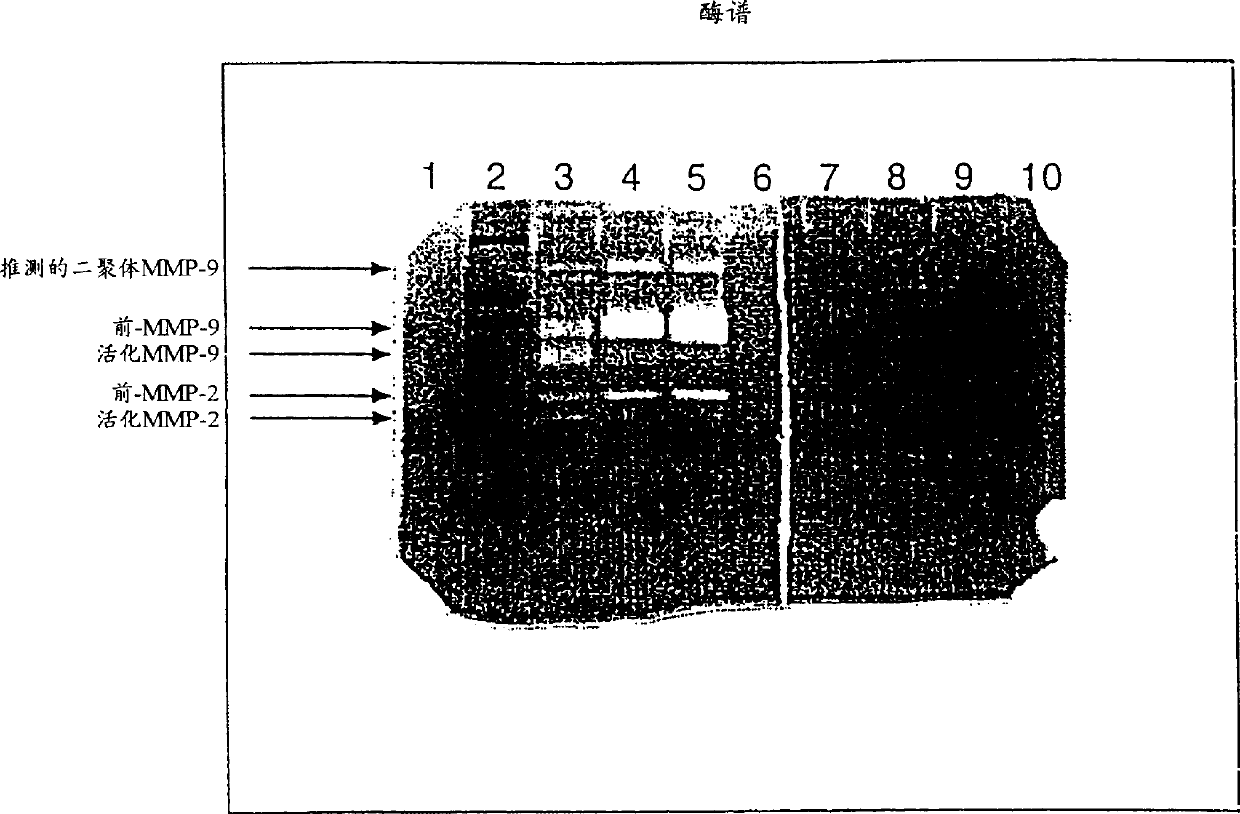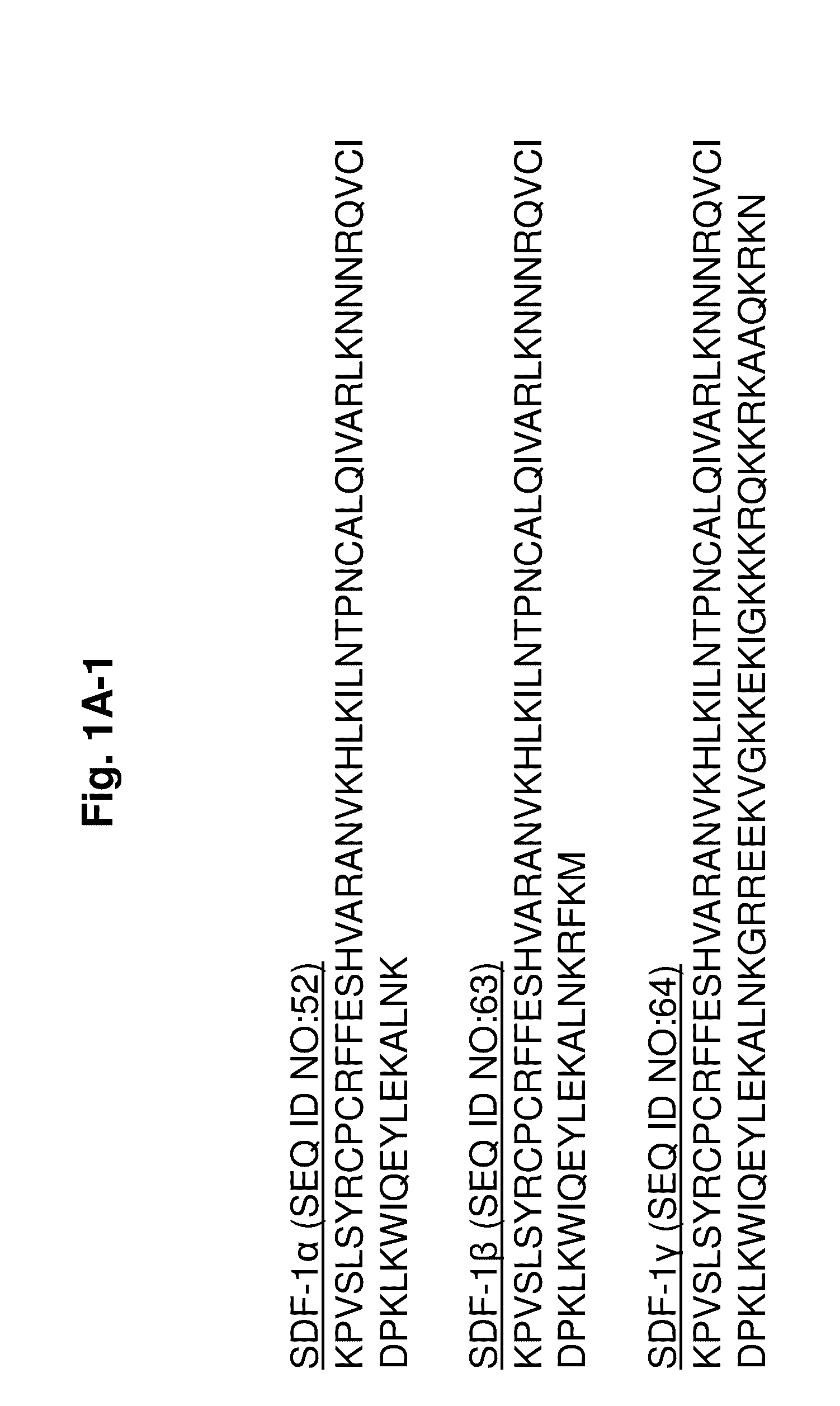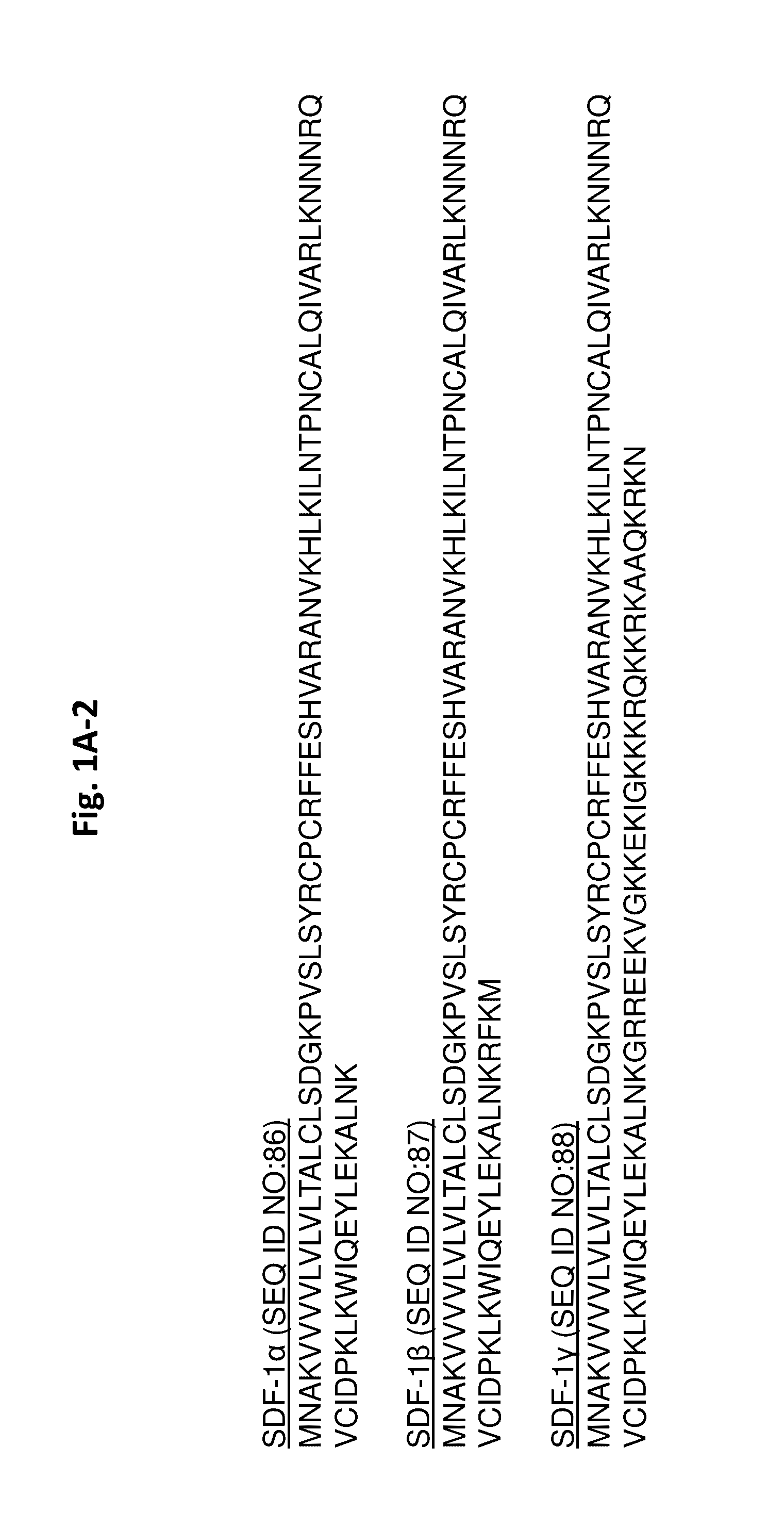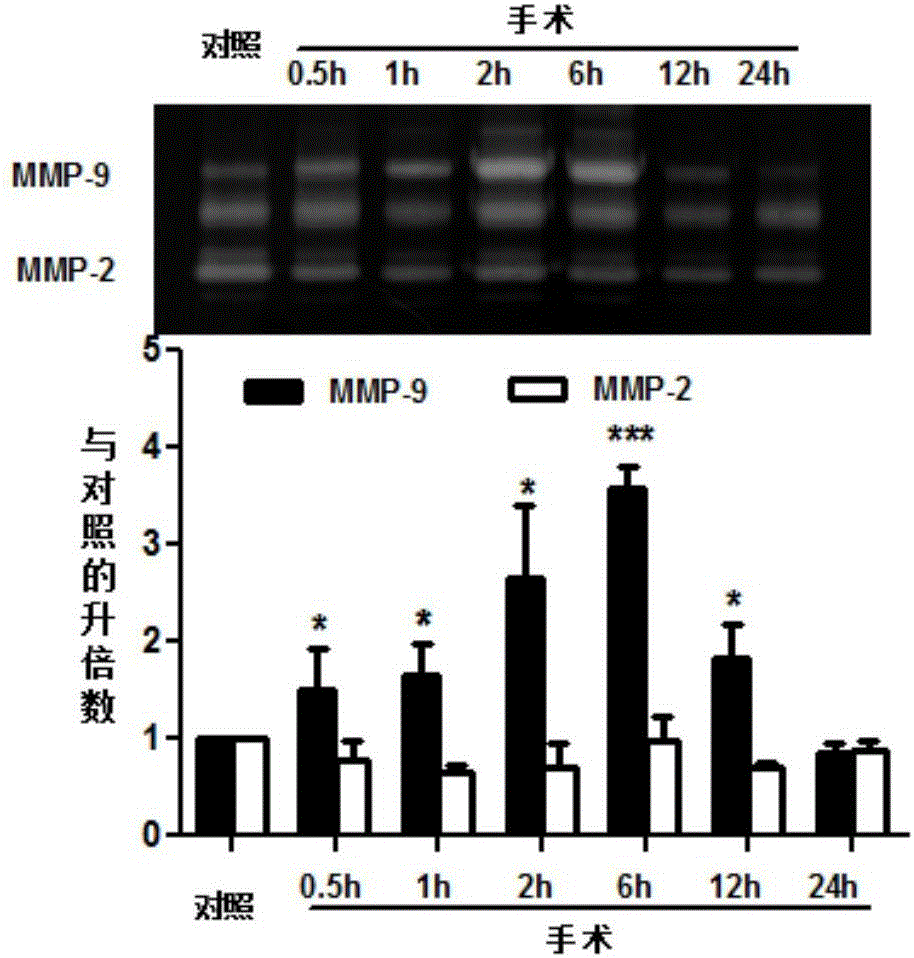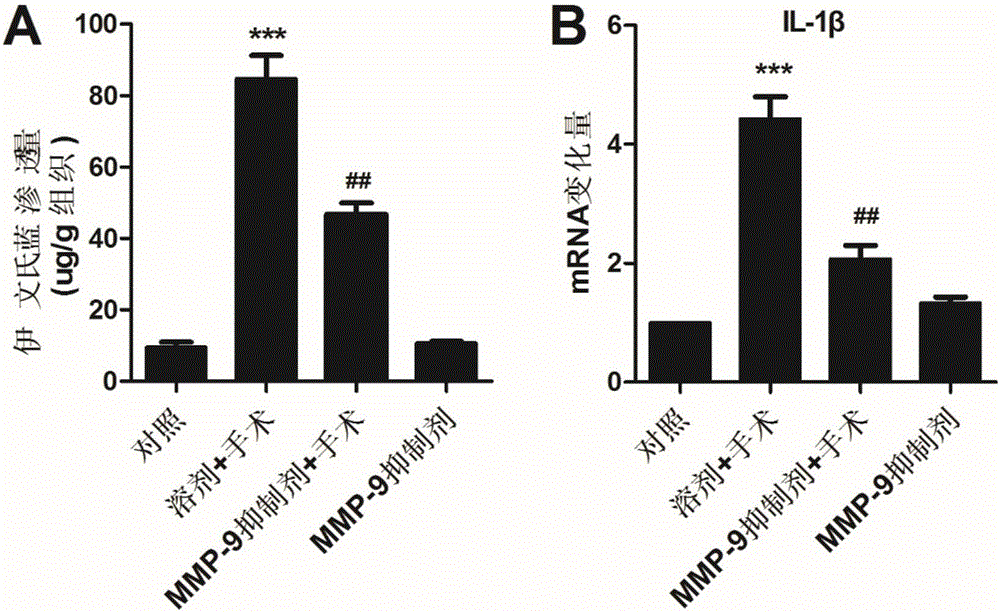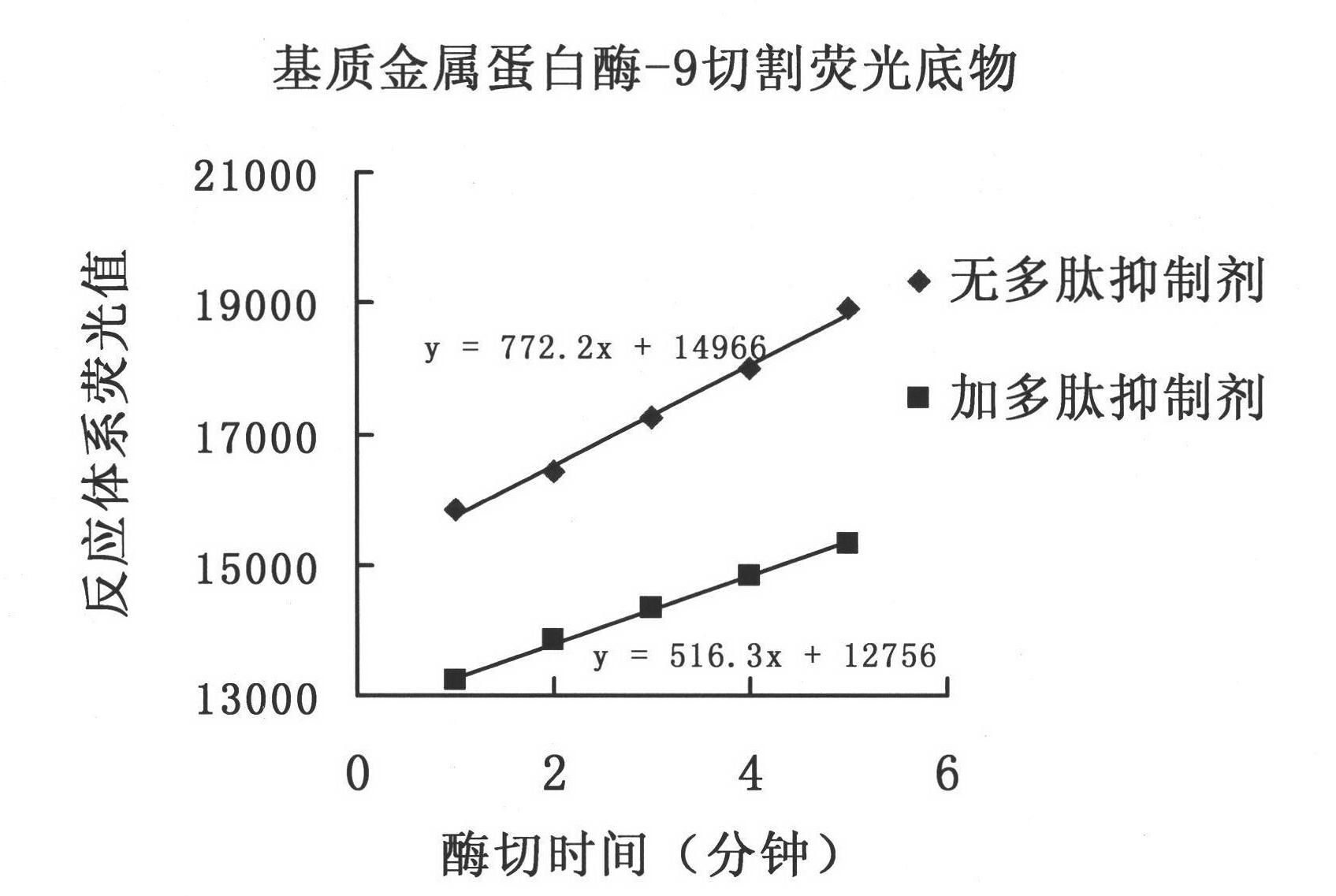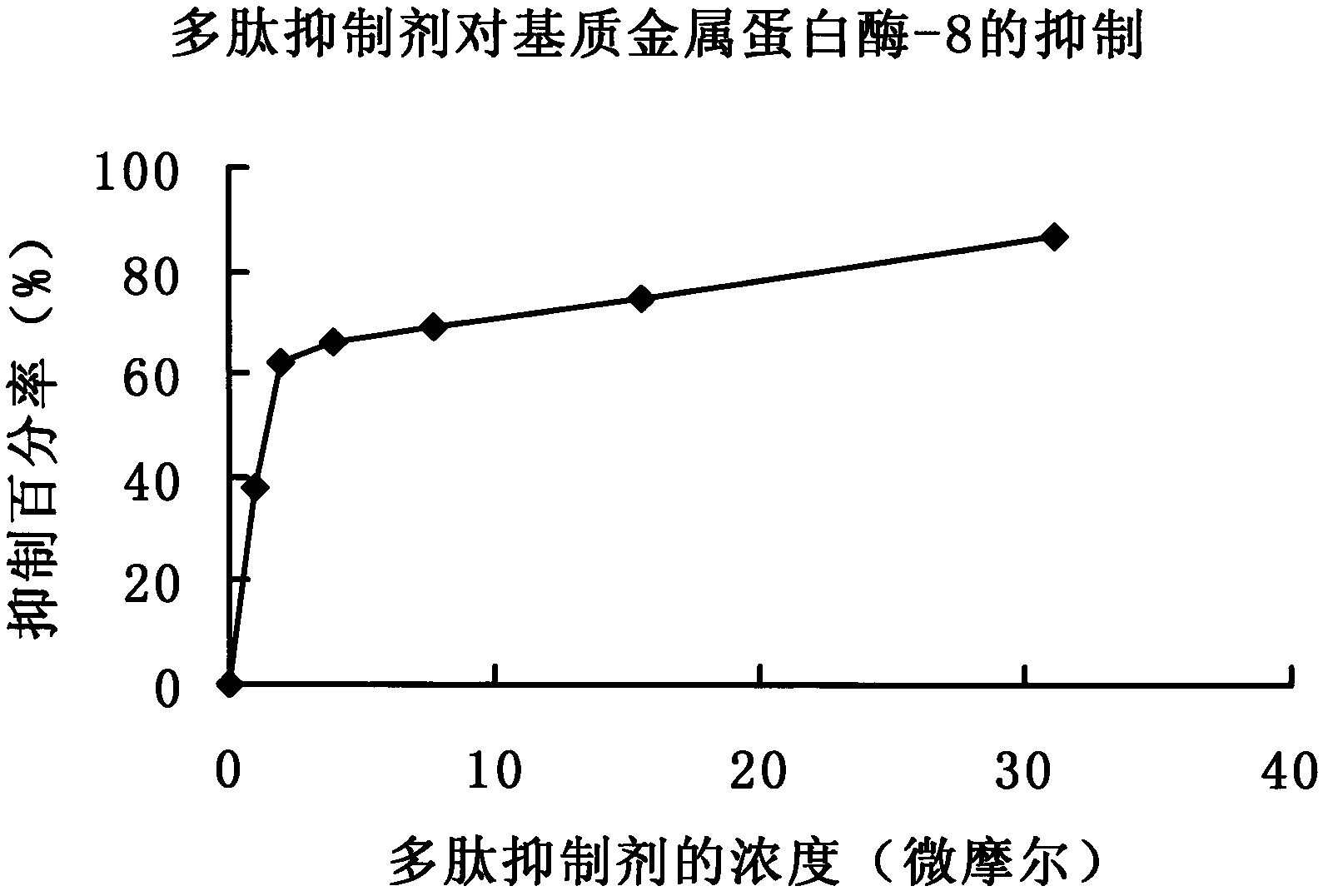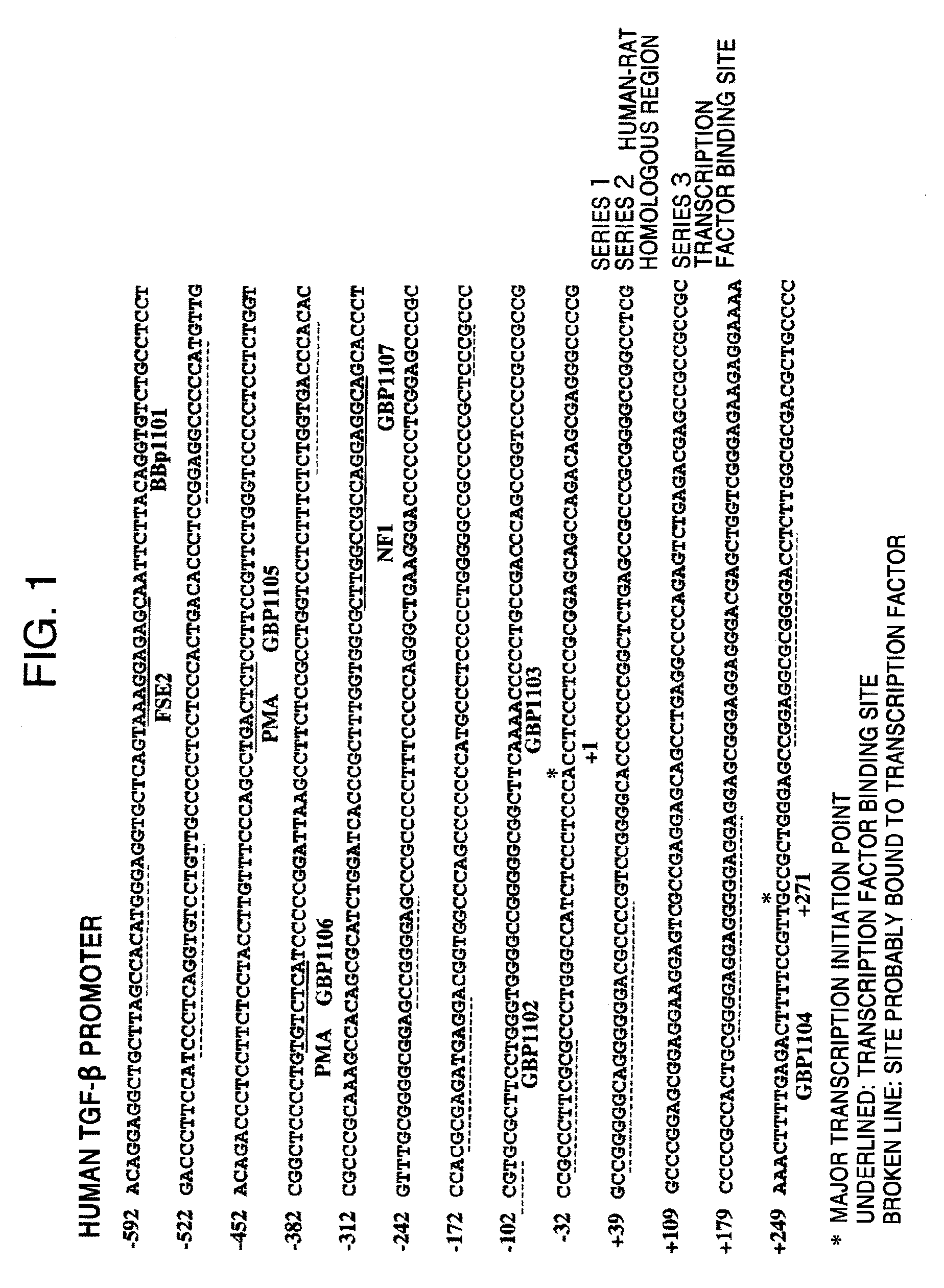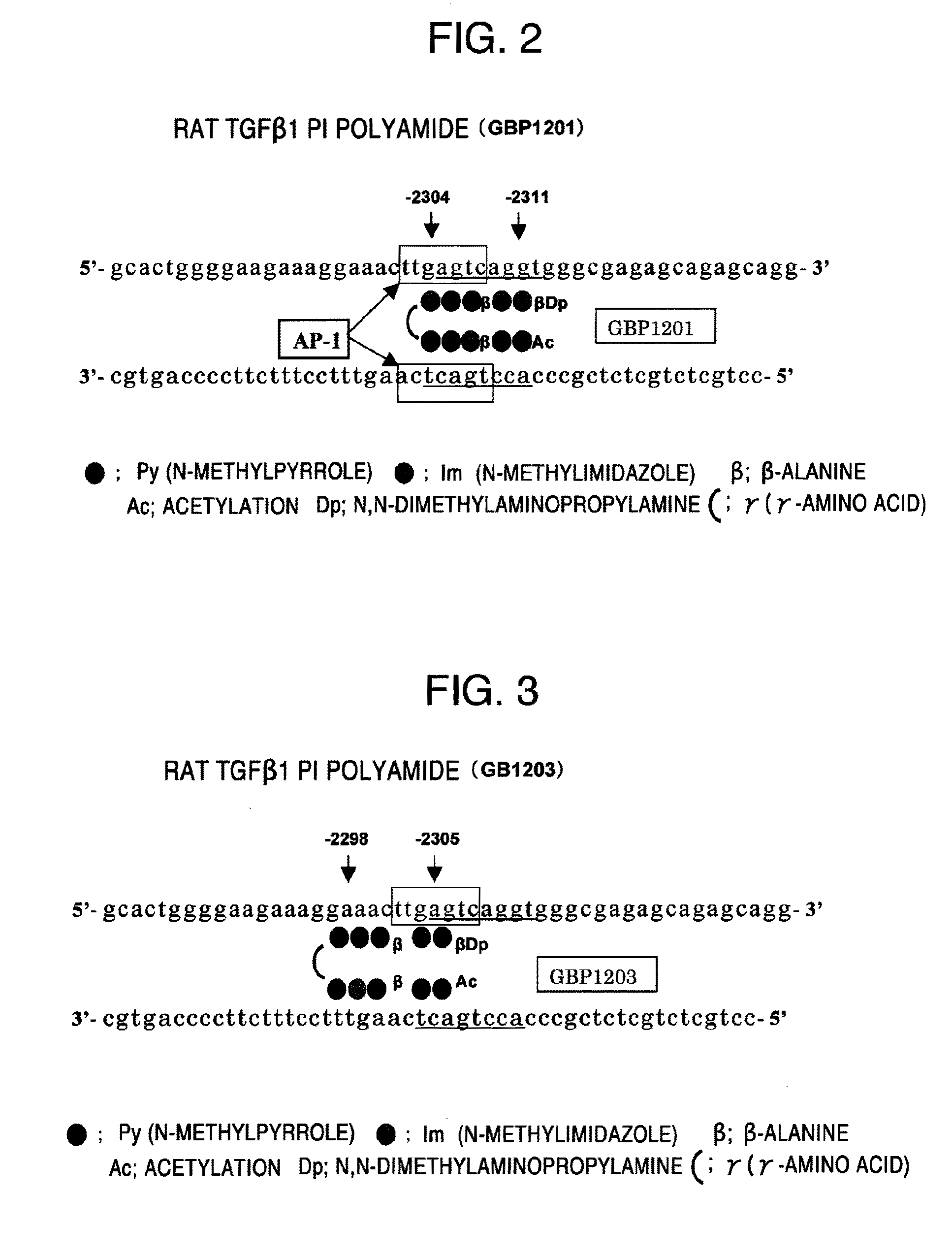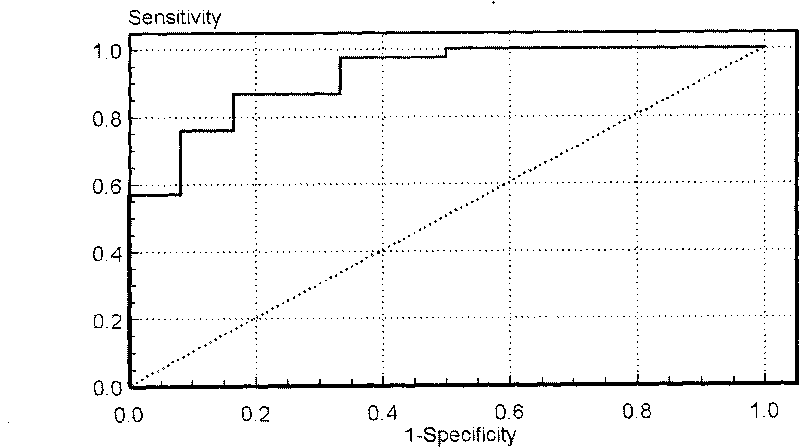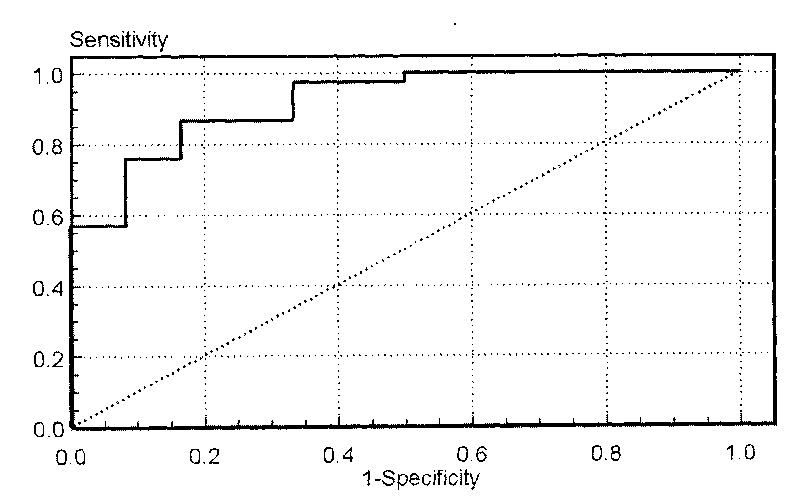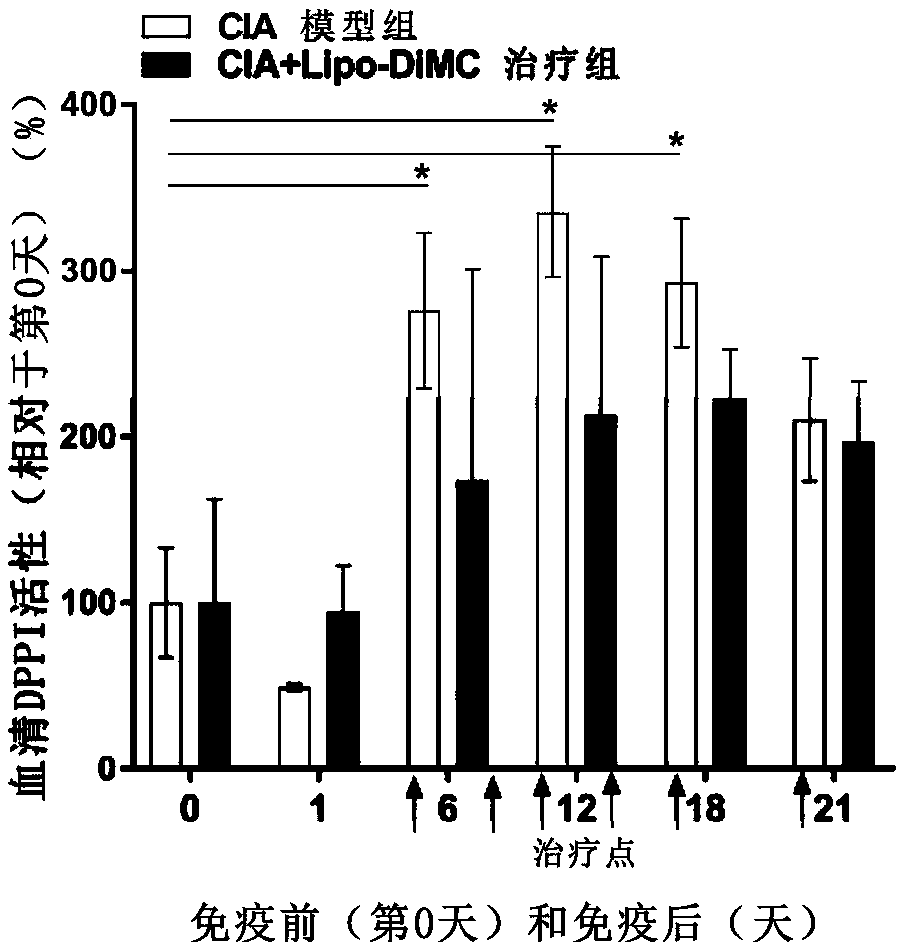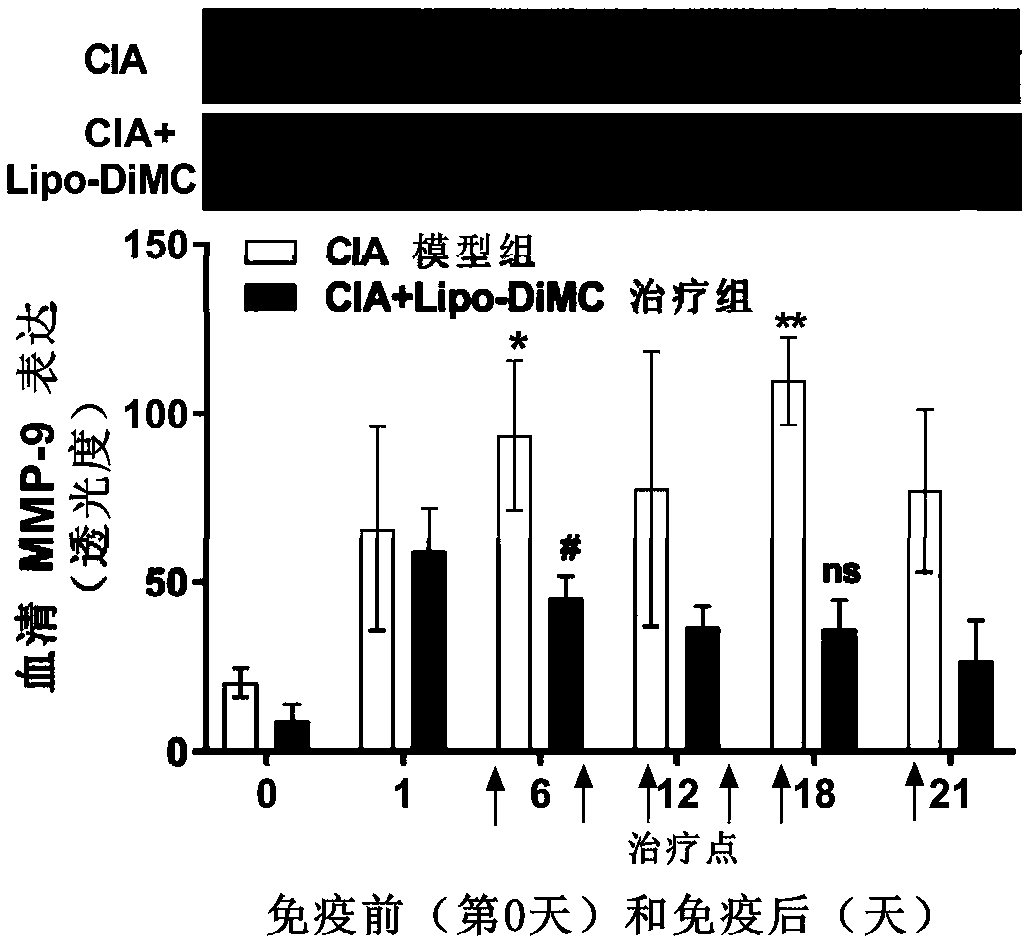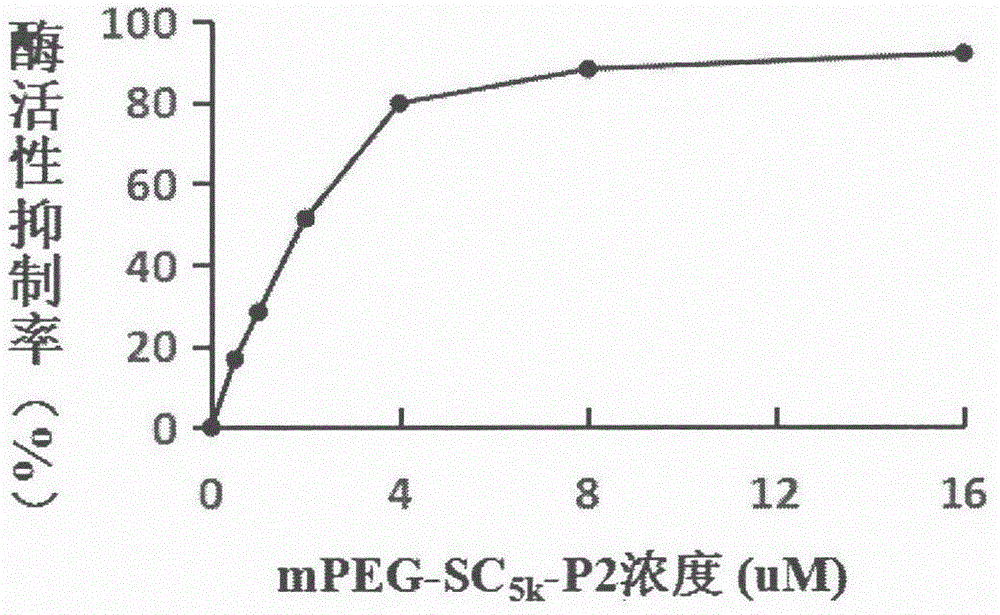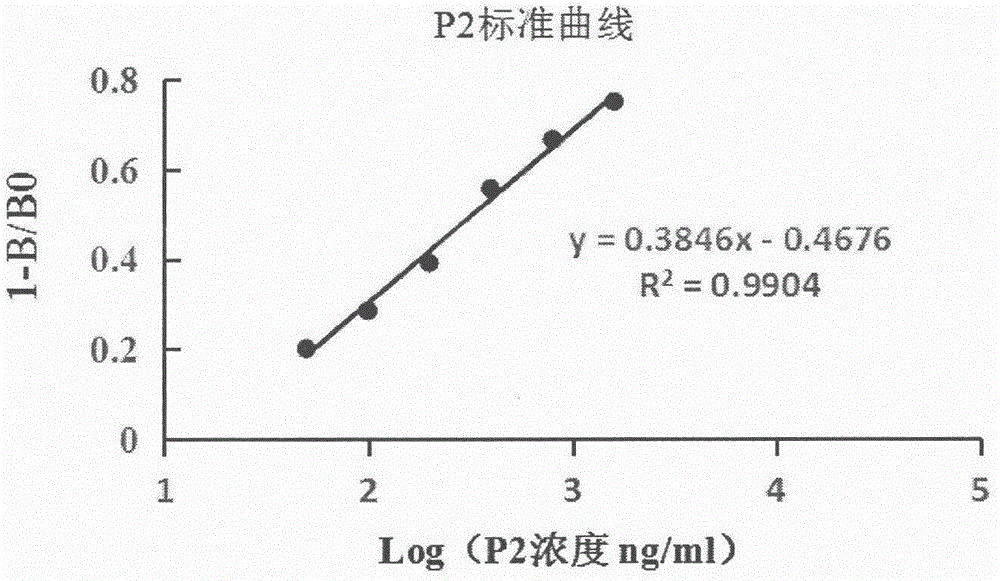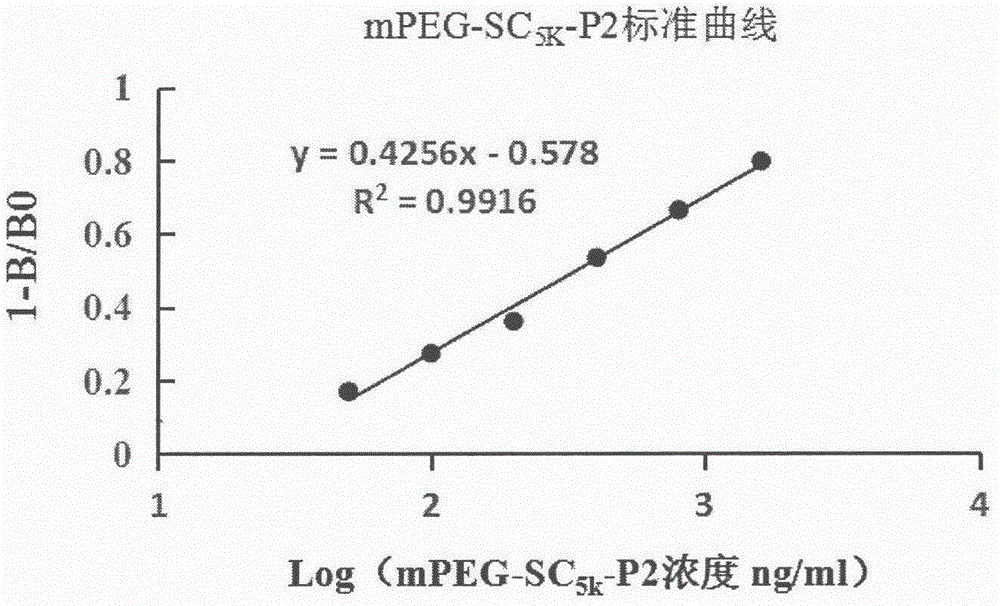Patents
Literature
Hiro is an intelligent assistant for R&D personnel, combined with Patent DNA, to facilitate innovative research.
64 results about "Matrix metalloproteinase 9" patented technology
Efficacy Topic
Property
Owner
Technical Advancement
Application Domain
Technology Topic
Technology Field Word
Patent Country/Region
Patent Type
Patent Status
Application Year
Inventor
Matrix metalloproteinase-9 polypeptide inhibitor 4 and its application
ActiveCN102268069AImprove survival rateAvoid damagePeptide/protein ingredientsAntipyreticFactor iiWilms' tumor
The invention relates to the field of medicaments, in particular to a polypeptide which has the effects of inhibiting substrate metal prolease-9 and tumor necrosis factor liberase and relieving the damage of an acute inflammatory reaction on an organism. The sequence of the polypeptide is Pro-(D-Pyr)-(D-Cys)-Bip-Arg-Gly-Glu which is a brand new sequence (D-Pyr is D-type pyridine alanine, D-Cys isD-type cysteine, and Bip is diphenyl alanine). The polypeptide can be used for inhibiting the activities of the substrate metal prolease-9 and the tumor necrosis factor liberase on 1 micromole level in vitro and increasing the survival rate of an endotoxic shock mouse in an in-vivo test, and has a potential new medicament development value.
Owner:CHINA PHARM UNIV
Application of curcumin in preparation of thyroid carcinoma therapeutic agent
InactiveCN102319234AReduce the impactPromote apoptosisKetone active ingredientsAntineoplastic agentsCell-Extracellular MatrixPolyadenosine diphosphate ribose polymerase
The invention discloses an application of curcumin in the preparation of a thyroid carcinoma therapeutic agent, and belongs to the technical field of curcumin pharmaceutical application. Curcumin can kill thyroid carcinoma cells specifically and has little influence on normal thyroid cells. Curcumin can promote the apoptosis of thyroid carcinoma cells, initiate the digestion of poly adenosine diphosphate-ribose polymerase (PARP), and significantly inhibit the expression of anti-apoptotic protein Bcl-2; meanwhile, curcumin can also inhibit the secretion of thyroid carcinoma cell matrix metalloproteinase-9 and the adhesion to extracellular matrix. Above results show that curcumin has good intervention effect on various links of proliferation, migration, and adhesion of thyroid carcinoma cells, and is applicable to the preparation of medicaments for treating thyroid carcinoma.
Owner:JIANGSU INST OF NUCLEAR MEDICINE
Monitoring heart failure
ActiveUS7319017B2Microbiological testing/measurementEnzymologyMatrix metalloproteinase 9First myocardial infarction
An in vitro method for identifying subjects at risk of heart failure following a Myocardial Infarction comprising analyzing the concentration of Matrix Metalloproteinase-9 in a bodily sample from a subject who has suffered a Myocardial Infarction and comparing this concentration with a reference for concentrations of Matrix Metalloproteinase-9 in individuals who have not suffered a Myocardial Infarction; wherein a raised concentration of Matrix Metalloproteinase-9 in the bodily sample from a subject who has suffered a Myocardial Infarction suggests the subject is at risk of heart failure.
Owner:LUXEMBOURG INST OF HEALTH - LIH
Matrix metalloproteinase-9 polypeptide inhibitor 1 and its application
InactiveCN102268068AImprove survival rateAvoid damagePeptide/protein ingredientsAntipyreticArginineFactor ii
The invention relates to the field of medicaments, in particular to a polypeptide which has the effects of inhibiting substrate metal prolease-9 and tumor necrosis factor liberase and relieving the damage of an acute inflammatory reaction to an organism. The sequence of the polypeptide is Pro-Arg-Cys-(D-Bip)-(D-Arg)-Gly-Glu which is a brand new sequence (D-Bip is D-type diphenyl alanine, and D-Arg is D-type arginine). The polypeptide can be used for inhibiting the activities of the substrate metal prolease-9 and the tumor necrosis factor liberase on 1 micromole level in vitro and increasing the survival rate of an endotoxic shock mouse in an in-vivo test, and has a potential new medicament development value.
Owner:CHINA PHARM UNIV
Protease-resistant mutants of stromal cell derived factor-1 in the repair of tissue damage
ActiveUS9308277B2Treating and reducing likelihoodPeptide/protein ingredientsAntibody mimetics/scaffoldsDipeptidyl peptidaseCathepsin G
The present invention features mutant stromal cell derived factor-1 (SDF-1) peptides that have been mutated to make them resistant to digestion by, for example, the proteases dipeptidyl peptidase IV (DPPIV), matrix metalloproteinase-2 (MMP-2), matrix metalloproteinase-9 (MMP-9), leukocyte elastase, cathepsin G, carboxypeptidase M, and carboxypeptidase N, but which retain chemoattractant activity.
Owner:MESOBLAST INTERNATIONAL SARL
Compositions and methods for treating cancer, inflammatory diseases and autoimmune diseases
InactiveUS20170306050A1Antibacterial agentsNervous disorderAutoimmune diseaseMatrix metalloproteinase 9
The present disclosure provides compositions and methods of use comprising a matrix metalloproteinase-9 (MMP9) binding protein, alone or in combination with one or more additional therapeutic agents for the treatment or prevention of diseases and conditions.
Owner:GILEAD SCI INC
Construction method of enzyme-reponsive multifunctional nano-coating
ActiveCN107376036AOrderly assemblySustained and stable surface biological functionSurgeryCoatingsEndothelial regenerationHigh concentration
The invention discloses a construction method of an enzyme-reponsive multifunctional nano-coating. The construction method comprises the following steps: firstly, immobilizing avidin molecules to the surface of dopamine-coated stainless steel; then, on the basis of specific recognition and binding effects between avidin and biotin, immobilizing biotinylated heparin / PEI nanoparticles to the surface of a material, and further binding high-concentration avidin molecules to residual biotin on the surface of a nanoparticle coating, so that a novel biotin binding site is introduced; then, continuing to assemble biotinylated enzyme-responsive polypeptide to the surfaces of the nanoparticles on the basis of an interaction between the biotin and the avidin; and finally, by virtue of an EDC / NHS / MES coupling agent, immobilizing SDF-1[alpha] to an amino terminal of the polypeptide in a covalent mode, so that the multifunctional nano-coating, which has a matrix metalloproteinase 9 responsive characteristic, is constructed. According to the construction method provided by the invention, by constructing a multifunctional layer, which has anti-coagulating and endothelial regeneration inducing capacities, on a titanium surface, blood compatibility and a damaged endothelial repair capacity of the material can be obviously improved.
Owner:HUAIYIN INSTITUTE OF TECHNOLOGY +1
Molecular marker for diagnosing or treating glioma and applications thereof
ActiveCN109609653AInhibition of invasion and migrationInhibition of VM formation abilityMicrobiological testing/measurementAntineoplastic agentsROBO1MicroRNA
The invention provides a molecular marker for diagnosing or treating glioma and applications thereof. Experimental studies show that the expression of microRNA-588 in glioma is significantly up-regulated in hypoxia state than in normoxia state. In vitro experiments show that the miR-588 can inhibit the invasive migration of glioma cells and VM formation ability. In order to clarify the molecular mechanism, further experiments find that Robo1 is a direct and functional related target of the miR-588 in glioma. The knocking out of the Robo1 inhibits the expression of matrix metalloproteinase 2 (MMP2) and matrix metalloproteinase 9 (MMP9), thereby inhibiting invasive migration of glioma and VM formation ability. Therefore, the miR-588 and the Robo1 can be used as a molecular marker for diagnosing or treating glioma.
Owner:山东华链医疗科技有限公司
Methods and kits for the diagnosis of hypothyroidism
InactiveUS20080020475A1Quick checkAccurate diagnosisGenetic modelsDigital computer detailsAntigenWhite blood cell
Provided are methods for the detection and diagnosis of Hypothyroidism. The methods are based on the discovery that altered levels of selected analytes in sample fluid, typically blood samples, of patients are supportive of a diagnosis of Hypothyroidism. At least twenty-four new biomarkers for hypothyroidism are thus disclosed (singly or in any combination), Thyroid Stimulating Hormone, Interleukin-12p40, Tumor Necrosis Factor Alpha, Tissue Factor, Interleukin-15, Insulin, Immunoglobulin E, Growth Stimulating Hormone, Calcitonin, Prostate-Specific Antigen, Interleukin-4, Granulocyte Macrophage Colony Stimulating Factor, Matrix Metalloproteinase 9, Lymphotactin, Fatty Acid Binding Protein, Alpha Fetoprotein, Alpha-2 Macroglobulin, Serum Glutamic Oxaloacetic Transaminase, Matrix Metalloproteinase 3, Cancer Antigen 125, Mumps Antibody, Double Stranded DNA Antibody, Proliferating Cell Nuclear Antigen Antibody, Smith Antibody, or Herpes Simplex Virus 1 Glycoprotein D Antibody. Altogether the concentrations of one or more of these analytes, as well as Thyroid Stimulating Hormone, or any combination thereof, provide a sensitive and selective picture of the patient's condition, namely, whether the patient is suffering from Hypothyroidism. Kits containing reagents to assist in the analysis of fluid samples are also described.
Owner:HEALTH RES INC +1
Gene expression inhibitor selective for matrix metalloproteinase-9 gene
Disclosed are: an inhibitor of the expression of matrix metalloproteinase-9 gene; a therapeutic agent for a disease associated with matrix metalloproteinase-9; and a carcinostatic agent. Each of the agents comprises a pyrrole-imidazole polyamide having an N-methylpyrrole unit, an N-methylimidazole unit and a γ-aminobutyric acid unit. The pyrrole-imidazole polyamide can be folded at the site of the γ-aminobutyric acid unit to form a U-shaped conformation in a minor groove of a double-stranded domain comprising a part or the whole of a specific nucleotide sequence (SEQ ID NO:2, SEQ ID NO:4) included in a human matrix metalloproteinase-9 gene promoter and a strand complementary to the part or the whole of the specific nucleotide sequence. In the U-shaped conformation, a Py-Im pair, an Im / Py pair and a Py / Py pair in the pyrrole-imidazole polyamide target a C-G base pair, a G-C base pair, and both of an A-T base pair and a T-A base pair in the minor groove, respectively.
Owner:NIHON UNIVERSITY
Methods and compositions for diagnosis and prognosis of renal injury and renal failure
InactiveUS20110306063A1Eliminate needEasy to adaptMaterial analysis by observing effect on chemical indicatorBiostatisticsMatrix metalloproteinase 9Serum amyloid P component
The present invention relates to methods and compositions for monitoring, diagnosis, prognosis, and determination of treatment regimens in subjects suffering from or suspected of having a renal injury. In particular, the invention relates to using assays that detect one or more markers selected from the group consisting of Clusterin, Heart-type fatty acid binding protein, Hepatocyte growth factor, Interferon gamma, Interleukin-12 subunit beta, Interleukin-16, Interleukin-2, 72 kDa type IV collagenase, Matrix metalloproteinase-9, Midkine, and Serum amyloid P-component as diagnostic and prognostic biomarkers in renal injuries.
Owner:ASTUTE MEDICAL
Drug for Inhibiting Production of Matrix Metalloprotease-9
A drug for inhibiting the production of matrix metalloproteinase-9 which contains leptomycin B or its derivative as the active ingredient can specifically inhibit the production of MMP-9 compared with MMP-2, furthermore, has an effect of inhibiting the production of MMP-9 even under stimulating the differentiation by adding calcium at a high concentration or adding TGF-β, and under stimulating for inducing inflammation by adding TNF-α or adding IL-2α.
Owner:JAPAN SCI & TECH CORP
Application of micro peptide CIP2A-BP in treatment of cancer
ActiveCN110064045AInhibit transferPrevent invasionPeptide/protein ingredientsAntineoplastic agentsCell cancerIn vivo experiment
The invention relates to application of micro peptide CIP2A-BP in treatment of cancer. From the prospective of translating horizontal IncRNA codes, the influence of the micro peptide on the malignantbiological behaviors of breast cancer cell transferring and migration is studied. By means of treatment of the targeted micro peptide CIP2A-BP, B56 gamma subunits of the micro peptide CIP2A-BP and PP2A are competitively bound with cell cancer genes CIP2A, and therefore PP2A activity is released, activation of a PI3K / AKT / NF kappa B access is inhibited, and consequently the expression level of matrix metalloproteinase 2 (MMP-2), matrix metalloproteinase 9 (MMP-9) and EMT induced transcription factors Snail is reduced. It is proved through in-vitro and in-vivo experiments that migration and invasion of breast cancer cells can be obviously inhibited through micro peptide CIP2A-BP, and the micro peptide CIP2A-BP has clinical application value on breast cancer.
Owner:SUZHOU UNIV
New honeysuckle chlorogenic acid ester saponin as well as preparation method and use thereof
The invention relates to the field of natural pharmaceutical chemistry and discloses a chemical structure of a new honeysuckle chlorogenic acid ester saponin compound which is extracted and separated from lonicera macranthodes hand-mazz buds, and the compound has the structure as shown in the right formula. The invention further relates a preparation method of the compound and a use of the compound in the field of medicine, in particular to a use of the compound in preparation of cycloxygenase II inhibitors, matrix metalloproteinase-9 inhibitors or anti-tumor drugs.
Owner:INST OF BOTANY JIANGSU PROVINCE & CHINESE ACADEMY OF SCI
Biomakers useful in liver fibrosis diagnosis
Identification of urokinase-type plasminogen, matrix metalloproteinase 9, and β-2-microglobulin as novel biomarkers associated with liver fibrosis and uses thereof in diagnosing liver fibrosis.
Owner:IND TECH RES INST
Matrix metalloproteinase-9 polypeptide inhibitor 2 and its application
InactiveCN102268070AImprove survival rateAvoid damagePeptide/protein ingredientsAntipyreticSaxitoxinOrganism
The invention relates to the field of medicaments, in particular to a polypeptide which has the effects of inhibiting metal prolease-9 and tumor necrosis factor liberase and relieving the damage of an acute inflammatory reaction on an organism. The sequence of the polypeptide is Pro-Arg-(D-Cys)-Bip-Arg-Gly-Glu (Bip is D-type diphenyl alanine, D-Cys is D-type cysteine), which is a brand new sequence. The polypeptide can be used for inhibiting the activities of the substrate metal prolease-9 and the tumor necrosis factor liberase on 1 micromole level in vitro and increasing the survival rate ofan endotoxic shock mouse in an in-vivo test, and has a potential new medicament development value.
Owner:CHINA PHARM UNIV
Application of trihydroxyflavone in preparing medicament used for preventing and treating abdominal aortic aneurysm
The invention relates to application of trihydroxyflavone in preparing medicament used for preventing and treating abdominal aortic aneurysm. It is found that trihydroxyflavone can significantly inhibit formation of the abdominal aortic aneurysm induced by angiotensin II. The inhibiting effect mainly comprises inhibiting oxyradical generation, reducing inflammatory cell infiltration, inhibiting inflammatory factor secretion, and reducing expression level and enzymatic activity of matrix metalloproteinase 2 and matrix metalloproteinase 9, meanwhile, trihydroxyflavone can inhibit AngII signaling pathway by down-regulating AT1R.
Owner:THE INST OF BASIC MEDICAL SCI OF CHINESE ACAD OF MEDICAL SCI
Detection of endometrial cancer
InactiveCN1257550AMicrobiological testing/measurementBiological material analysisGynecologyClinical trial
This invention relates to methods for assaying the presence and / or risk of endometrial cancer by measurement of levels of matrix metalloproteinase-2 and / or matrix metalloproteinase-9 in uterine washings. The method may be qualitative or quantitative, and is adaptable to large-scale screening and to clinical trials.
Owner:默尔本大学 +1
Suspension chip detection kit used for diagnosing preoperative ovarian cancer pelvic external transfer and preparation method thereof
InactiveCN102608322AImprove accuracyReduce subjectivityMaterial analysisBiotin-streptavidin complexCell-Extracellular Matrix
The invention discloses a suspension chip detection kit used for diagnosing preoperative ovarian cancer pelvic external transfer and a preparation method thereof. The kit mainly comprises three kinds of coupling hydroxyl fluorescent microspheres and three kinds of goat anti-human polyclonal antibodies, wherein the three kinds of coupling hydroxyl fluorescent microspheres respectively coat three kinds of murine anti-human monoclonal antibodies of full-length cDNA (complementary DNA) coding protein, i.e., MMP9 (matrix metalloproteinase-9), Hpa1 and CL; and the three kinds of goat anti-human polyclonal antibodies respectively are streptavidin and mycin-phycoerythrobilin affinity coupling MMP9, Hpa1 and CL goat anti-human polyclonal antibodies. The kit adopts a suspension chip technology to realize joint detection of the content of three kinds of extracellular matrix proteases MMP9, Hpa1 and CL. The kit can be used for diagnosing preoperative pelvic external transfer of ovarian cancer patients and contributes to determining the best therapeutic schedule and judging the prognosis condition and the like.
Owner:广西壮族自治区肿瘤防治研究所
Protease-resistant mutants of stromal cell derived factor-1 in the repair of tissue damage
ActiveUS20160375100A1Treating and reducing likelihoodChemokinesPeptide/protein ingredientsCarboxypeptidase MCell biology
The present invention features mutant stromal cell derived factor-1 (SDF-1) peptides that have been mutated to make them resistant to digestion by, for example, the proteases dipeptidyl peptidase IV (DPPIV), matrix metalloproteinase-2 (MMP-2), matrix metalloproteinase-9 (MMP-9), leukocyte elastase, cathepsin G, carboxypeptidase M, and carboxypeptidase N, but which retain chemoattractant activity.
Owner:MESOBLAST INTERNATIONAL SARL
Application of acetylcysteine in preparation of medicines for preventing and treating postoperative cognitive dysfunction and blood-brain barrier damage mediated encephalopathy
InactiveCN106822079ARich sourcesImprove securityOrganic active ingredientsNervous disorderInflammatory factorsPostoperative cognitive dysfunction
The invention discloses application of acetylcysteine in preparation of medicines for preventing and treating postoperative cognitive dysfunction and blood brain-barrier damage mediated encephalopathy and specifically discloses application of acetylcysteine in treatment of cognitive impairment after anesthesia and surgical trauma. Due to advanced application of the acetylcysteine before operative anesthesia, reduction of fear memory ability and new object recognition ability related to hippocampus after the anesthesia and operation can be obviously alleviated. The effect is specifically achieved by inhibiting a level of peripheral matrix metalloproteinase-9 through the acetylcysteine to protect the blood brain-barrier function and reducing the inflammatory factor up-regulation level of the hippocampus.
Owner:XUZHOU MEDICAL UNIV
New application of inhibitor of matrix metal metal protease (MMP) in use for treating hemorrhoid
InactiveCN1660429APharmaceutical delivery mechanismPharmaceutical active ingredientsProteinase activityMedicine
An application of the matrix metal proteinase (MMP) inhibitor, especially the inhibitor of 1(MMP1), 9 (MMP9) or 12 (MMP12), in preparing the medicines for preventing and / or treating piles is disclosed.
Owner:BEIJING BIOSIS HEALING BIOLOGICAL TECH
Matrix metalloproteinase-9 polypeptide inhibitor 3 and application thereof
InactiveCN102250213AImprove survival rateAvoid damagePeptide/protein ingredientsAntipyreticWilms' tumorMatrix metalloproteinase 9
The invention relates to the field of medicaments, in particular to a polypeptide for inhibiting matrix metalloproteinase-9 and tumor necrosis factor kallikrein and reducing destroy on an organism by acute inflammatory reaction. A sequence of the polypeptide is Pro-(D-Pyr)-(D-Cys)-Bip-(D-Cys)-Gly-Glu and is a brand new sequence, wherein Bip is biphenyl alanine, D-Pyr is D-type pyridine alanine, and D-cys is D-type cysteine; the activities of the matrix metalloproteinase-9 and the tumor necrosis factor kallikrein can be inhibited in vitro at the level of 1 micromole; the survival rate of mice undergoing endotoxic shock is increased during an in-vivo test; and the polypeptide has a potential novel medicament development value.
Owner:CHINA PHARM UNIV
Topical therapeutic agent for ophthalmic diseases comprising compound capable of binding specifically to DNA sequence
Disclosed is a topical therapeutic agent for ophthalmic diseases, which comprises a compound capable of binding specifically to a DNA sequence. More preferably disclosed is a topical therapeutic agent for ophthalmic diseases, which comprise a pyrrole-imidazole polyamide having a specific structure. The topical therapeutic agent for ophthalmic diseases comprises a pyrrole-imidazole polyamide which can inhibit transforming growth factor-β gene and matrix metalloproteinase 9 gene.
Owner:NIHON UNIVERSITY
Diagnostic marker and platform for drug design in myocardial infarction and heart failure
Methods for determining the susceptibility of an individual to a heart condition, post myocardial infarction, comprising detecting the presence of an amino acid change in the sequence of the hemopexindomain of MMP -9 (Matrix Metalloproteinase 9), the presence of an amino acid change in said domain being indicative of susceptibility to said heart condition, post myocardial infarction is described,together with methods for drug design.
Owner:公共健康研究中心
Application of MMP9 (matrix metalloproteinase 9) as diagnosis marker of ovarian cancer
InactiveCN101738478AHigh sensitivityImprove featuresBiological material analysisBiological testingOncologyMatrix metalloproteinase 9
The invention provides a method for diagnosing ovarian cancer of subjects, which comprises the steps of: detecting MMP-9 content of samples from the subjects; analyzing the MMP-9 content; and confirming whether the subjects are suffered from ovarian cancer or not according to the analysis results. The invention also provides a kit for the diagnosis of ovarian cancer.
Owner:ZHEJIANG UNIV
Liposome dimethylcurcumin inhibits activities of dipeptidase I and matrix metalloproteinase-9
The liposome dimethylcurcumin is a liposome-encapsulated dimethylcurcumin (Lipo-DiMC). Dimethyl curcumin is a synthetic curcumin analog with the chemical formula C23H24O6. Compared with curcumin and dimethyl curcumin, Lipo- DiMC has better metabolic stability and is highly water soluble and has a sustained release effect in vivo. In some inflammatory, autoimmune and cancer diseases, Dipeptidyl peptidase (DPPI) and Matrix metalloproteinase (9, MMP-9) are overexpressed, leading to changes in tissue microenvironment and in vivo. Balance disorders and cause cell reproductive disorders. In the ratmodel of collagen induced arthritis (CIA) treated with Lipo-DiMC, Lipo-DiMC alleviated the swelling of the toes of CIA rats and inhibited DPPI and MMP in body fluids, blood and spleen lymphocytes of CIA rats-9 Overexpression of activity. The in vitro rat spleen lymphocyte model further confirmed that Lipo-DiMC inhibited and regulated the DPPI activity and MMP 9 expression and secretion in rat spleen lymphocytes.
Owner:CHANGZHOU UNIV
Expression system of in vitro culturing skeletal muscle
InactiveCN1724677AEasy to purifyEasy to detectVector-based foreign material introductionExpression geneMicrobiology
The invention relates to a skeletal muscle expression system cultivated in vitro that includes building the expression gene of the aim gene, expressing carrier transferring host cell group and filtering, expressing the aim gene in host cell and separating and purifying the expression product. The feature is that the expression carrier is constructed on the base of pcDAN3.0 and carrying myc10 testing mark and 6*his purified mark, and inserting 9(MMP-9) signal sequence into expression carrier. QM7 cell is adopted as host cell expression albumen. Non-serum separating culture medium suited to QM7 cell separating is filtered. The cost of culture medium is low and is benefit for the late purifying stage, and lays a strong foundation for large scale manufacturing medicine that uses PEX as rebuilding albumen.
Owner:BEIJING CANCER HOSPITAL PEKING UNIV CANCER HOSPITAL
Application of lignans compound in preparation of anti-hepatic fibrosis medicine
ActiveCN107595838AImprove proliferative abilityStrong anti-hepatic fibrosis effectOrganic active ingredientsSugar derivativesLignanMolecular level
The invention provides an application of a lignans compound in preparation of an anti-hepatic fibrosis medicine. In-vitro, in-vivo and molecular-level tests prove that the lignans compound has strongeffect of inhibiting proliferation of hepatic stellate cells and resisting the hepatic fibrosis, and also has lower IC50 value to matrix metalloproteinase-2 (MMP2), matrix metalloproteinase-9 (MMP9) and transforming growth factor-beta1 (TGF-beta1). The lignans compound can be combined with the substances mentioned hereinabove and can inhibit the bioactivities of the substances, so that the lignanscompound can be used as an anti-hepatic fibrosis medicine.
Owner:BEIJING INSTITUTE OF TECHNOLOGYGY
mPEG-SC5K modified matrix metalloproteinase-9 inhibitor polypeptide P2 and application thereof
InactiveCN106749636ABroaden the therapeutic spectrumExtended half-lifeAntibacterial agentsNervous disorderMedicineAutoimmune disease
The invention discloses an mPEG-SC5K modified matrix metalloproteinase-9 inhibitor polypeptide P2 and application thereof, and belongs to the technical field of polypeptide medicines. The polypeptide disclosed by the invention has a sequence of mPEG-SC5K-Pro-(D-Pyr)-(D-Cys)-Bip-Arg-Gly-Glu-Gly-Gly-Gly-Gly-Ile-Val-Arg-Arg-Ala-Asp-Arg-Ala-Ala-Val-Pro. Due to mPEG-SC5K modification, the polypeptide has an effect of inhibiting the activity of matrix metalloproteinase-9, has pharmacokinetic properties which are greatly improved compared with those of P2, and can be used for treatment of acute inflammations and autoimmune diseases taking overexpression and over-activity of the matrix metalloproteinase-9 as characteristics. The mPEG-SC5K modified polypeptide P2 designed in the invention is prepared by a synthetic method. The mPEG-SC5K modified polypeptide P2 achieves the effects of increasing the survival rate of endotoxic shock mice in acute inflammation tests and improving the paralysis degree of model mice in multiple sclerosis animal tests, and has potential new drug development value.
Owner:CHINA PHARM UNIV
Features
- R&D
- Intellectual Property
- Life Sciences
- Materials
- Tech Scout
Why Patsnap Eureka
- Unparalleled Data Quality
- Higher Quality Content
- 60% Fewer Hallucinations
Social media
Patsnap Eureka Blog
Learn More Browse by: Latest US Patents, China's latest patents, Technical Efficacy Thesaurus, Application Domain, Technology Topic, Popular Technical Reports.
© 2025 PatSnap. All rights reserved.Legal|Privacy policy|Modern Slavery Act Transparency Statement|Sitemap|About US| Contact US: help@patsnap.com
